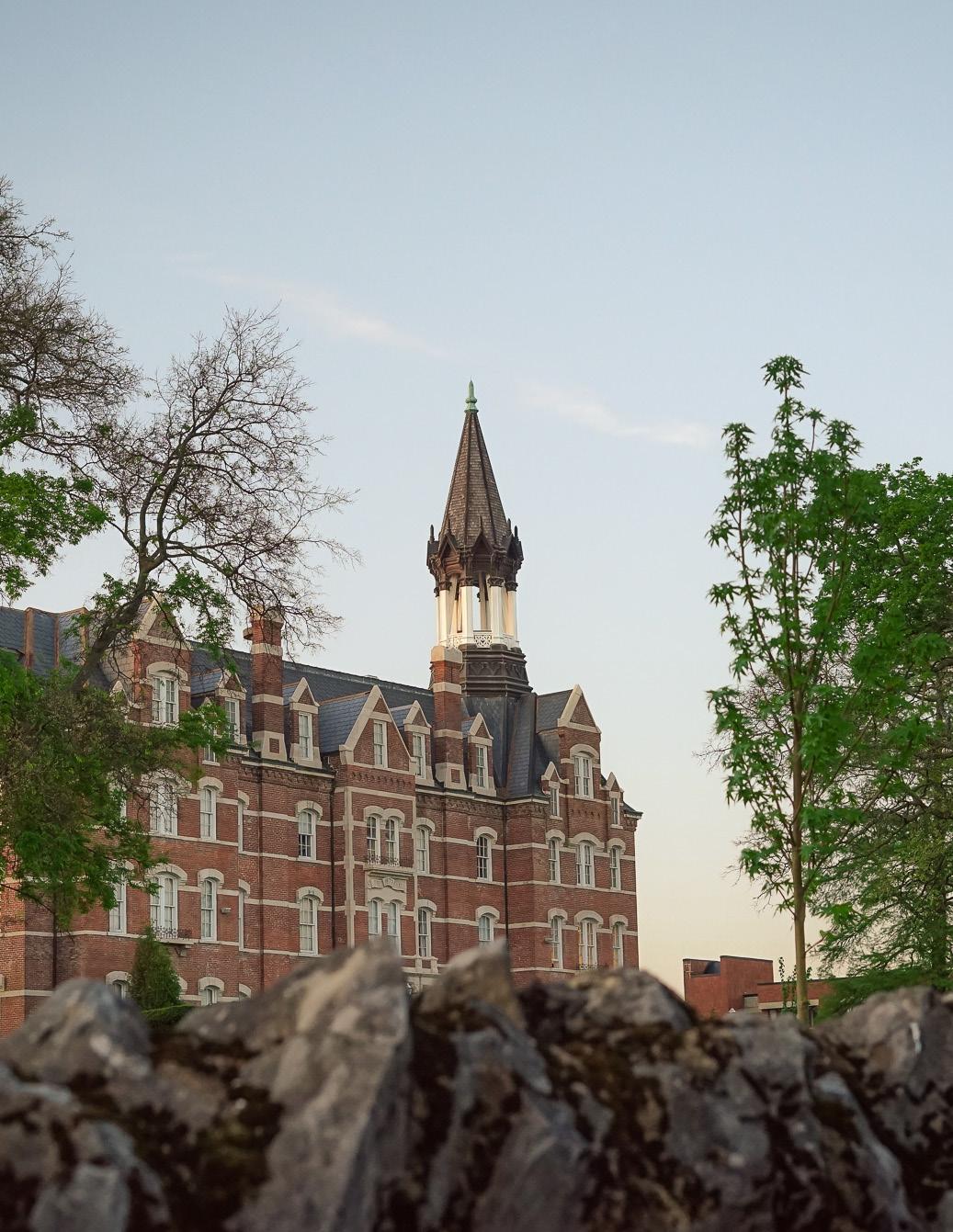


Leaders. Scholars. World Changers.





Leaders. Scholars. World Changers.


ON THE COVER /Spring 2024/ Vol. 6
Students prepare to launch a hot air balloon.
Cover Photo Courtesy of Drs. Kent Wallace and Rudy Gostowski
research & innovation magazine team
co-editors
Dr. Beverly McDonald-Robinson Director of ORSP and Title III
Dr. Andrea Stevenson Chair & Associate Professor of Kinesiology
layout & design
Ivy Brown Design Consultant
photography
Courtesy of the Fisk University Office of University Relations, guest contributors, falculty and student photographers.
Research & Innovation Magazine is published by:
FISK UNIVERSITY 1000 17th Avenue N. Nashville, TN 37208 (615) 329-8500
Research & Innovation Magazine at Fisk University is published annually by the Office of the Sponsored Research and Programs. The publication draws from the enormous range of current research and scholarly activities at Fisk University, comprising diverse projects supported by more than $6.7 million.
Opinions expressed do not reflect the official views of the University. Use of trade names implies no endorsement by Fisk University. For permission to reprint contact the Office of the Associate Provost for Research at 615/329-8524, or e-mail shussain@fisk.edu.
The 2024 Spring Issue of the Research & Innovation Magazine was made possible through partial support from The NSF/ Fisk Center of Excellence for Biological Signatures and Sensing (BioSS) and the Fisk University Van Vechten Art Gallery.
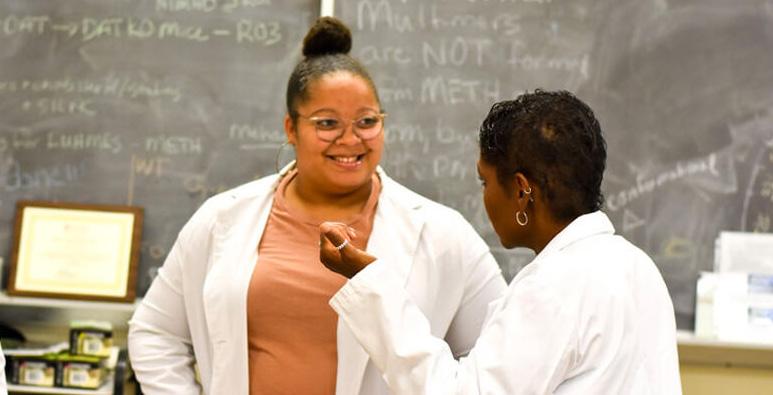
Welcome to the Spring 2024 issue of the Research & Innovation Magazine! In this edition, we are thrilled to shine a spotlight on the remarkable achievements of our students and the collaborative research endeavors with dedicated Fisk mentors.
This issue also celebrates the strides we are making in outreach initiatives and the establishment of new partnerships. Additionally, we are excited to highlight how our academic programs continue to evolve, with the introduction of new majors that reflect the dynamic
aspirations of our students.
We invite you to immerse yourself in the inspiring stories featured in this issue and to join us in celebrating the innovation and dedication that drives our community forward. We encourage our colleagues and students to share successes and milestones for future issues of the Research & Innovation Magazine.
Sincerely,
Founded in 1866, shortly after the end of the Civil War, Fisk University is a historically black university, and is the oldest institution of higher learning in Nashville, Tennessee. Fisk’s outstanding faculty and students continue to enhance the University’s national reputation for academic excellence, which is validated year after year by the leading third party reviewers, as well as, by the pool of talented applicants and the large percentage of alumni who complete graduate or professional degrees and become leaders and scholars in their fields.
Our Mission recognizes the importance of research
Fisk University produces graduates from diverse backgrounds with the integrity and intellect required for substantive contributions to society. Our curriculum is grounded in the liberal arts. Our faculty and administrators emphasize the discovery and advancement of knowledge through research in the natural and social sciences, business and the humanities. We are committed to the success of scholars and leaders with global perspectives.


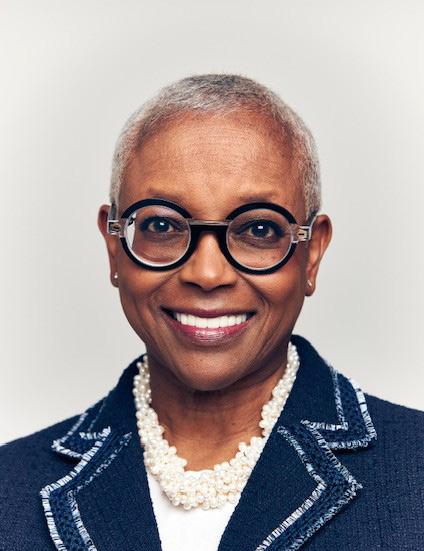
Dear Fisk Community:
It is with great pride and enthusiasm that I salute the legacy of interdisciplinary scholarship in this issue of the Research & Innovation Magazine –Fisk University’s Scholarly, Scientific, and Creative Endeavors. Fisk University has long been a beacon of excellence in education, the heart of social justice, and a champion of scientific discovery. It is encouraging to view the legacy of innovation thrive, through the remarkable efforts of our students and faculty.
The groundbreaking research projects of talented students and the dedicated guidance of the esteemed faculty embody the very essence of many reasons Fisk is special. Our purpose is an unwavering
commitment to intellectual growth and societal impact. From exploring new scientific frontiers to tackling pressing social challenges, the work on our campus is inspiring and transformative.
It is an honor to highlight the success of our faculty and students in securing grant funding, which further underscores the trust and confidence of federal agencies and external organizations in the quality of research at Fisk University. These funds not only support the advancement of knowledge but also open new doors for collaboration, innovation, and educational opportunities to benefit the global


Fisk University is ranked #1 based on Academic Stewardship scores (Forbes) and #11 among historical black universities, according to U.S. News and is the oldest institution of higher learning in Nashville, Tennessee.
Fisk’s outstanding faculty and students continue to enhance the University’s international reputation for academic excellence. Our scholars continue to make strides in all areas of the industry from Social Justice to the sciences. A Fisk education prepares our students to become beacons in servicing the community and well-rounded leaders and scholars in their respective fields. Fisk offers more than 40 undergraduate and graduate programs in Biology, Chemistry, Physics, Clinical Psychology with a bridge Masters to Ph.D. programs through a partnership with Vanderbilt University.
from the
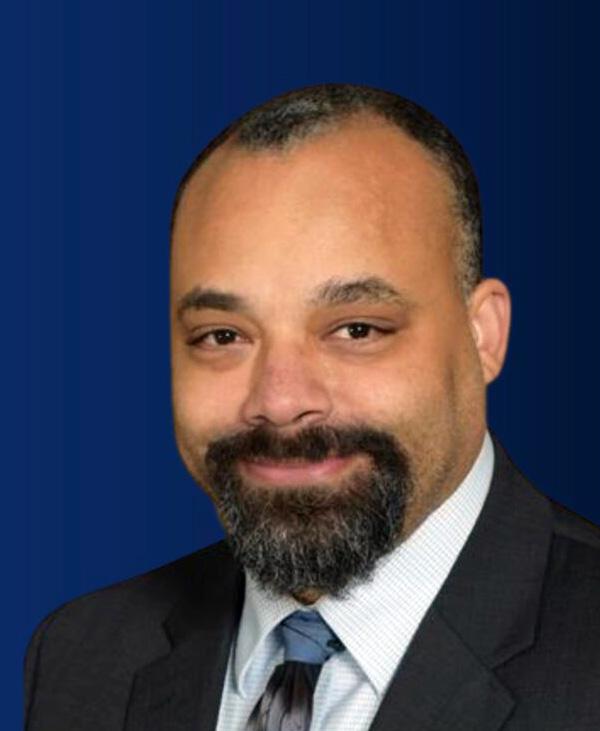
Dear Faculty, Staff, Students, and Alumni,
I am delighted to share that the 2023-24 academic year has been an outstanding period of growth and achievement for Fisk University. While there is always work to be done, we continue to excel in academics, research, and campus life, remaining steadfast in our commitment to academic excellence and student success.
Fisk University is proud to report remarkable accomplishments across all areas. Our faculty have continued to deliver world-class education, and our students are thriving in their studies and research endeavors. During the last fiscal year (2023-24), the university achieved research expenditures exceeding $4.5M and secured $5.2M in new grants.
For a complete list of faculty awards and achievements, please visit the Fisk University website at www.fisk.edu.
In addition to our academic success, the university has continued to focus on enhancing the student experience. Significant investments have been made in campus infrastructure, including new residential facilities, modernized research labs, and stateof-the-art learning spaces. Our vibrant student organizations and clubs remain a cornerstone of campus life, fostering engagement, creativity, and leadership development.
Diversity, equity, and inclusion continue to be central to Fisk University's mission. We have expanded initiatives to promote understanding and belonging across our community, and our efforts have once again been recognized nationally.
As we look ahead, I want to extend my heartfelt gratitude to our dedicated faculty, staff, and students. Your resilience, innovation, and commitment to the university's mission inspire me daily. Together, we are building a brighter future for Fisk University— one rooted in excellence, collaboration, and impact.
Thank you all for your continued dedication and contributions to Fisk University. I am confident that our collective efforts will sustain and amplify our legacy of greatness in the years to come.
Fisk Forever, Go Fisk!
Sincerely,

Robert Z. Carr, Jr. Provost, Fisk University
Greetings Colleagues,
The Office of Sponsored Research and Programs (ORSP) is the advocate to ensure the discoveries in science, technology, and social investigation produced at Fisk University is communicated across the United States and the global society. In the pursuit of the mission, “faculty and administrators emphasize the discovery and advancement of knowledge through research in the natural and social sciences, business and humanities.” The goal of the Office of Sponsored Research & Programs is to promote the vision of Fisk, as a premier liberal arts university of higher education preparing practitioners, inventors, and leaders to advance humanity for the welfare of public good.
We are celebrating Fisk University as a producer of graduate and undergraduate researchers, to bolster the advancement of innovators and creatives, on the national and international stage. In this edition of the Research & Innovation Magazine: Fisk University’s Scholarly, Scientific and Creative Endeavors, the array of research initiatives spans across holistic, interdisciplinary approaches to solve complex challenges, integrating the innovations of technology and thought leadership, to develop novel solutions for emerging and longstanding societal problems. We also applaud a major milestone achievement of our faculty for a total of 10.7 million dollars in grant awards, a significant increase, in the Competitive Grants Awarded from 2019 – 2023.
As we mark this issue with celebration, we welcome Dr. Andrea K. Stevenson, Associate Professor of Kinesiology and Dr. Beverly McDonaldRobinson, Director of Sponsored Research & Programs, as the new editors of the Research & Innovation Magazine: Fisk University’s Scholarly, Scientific and Creative Endeavors. We are looking forward to presenting research in motion with outcomes and results of exciting explorations, discoveries, and adventures.
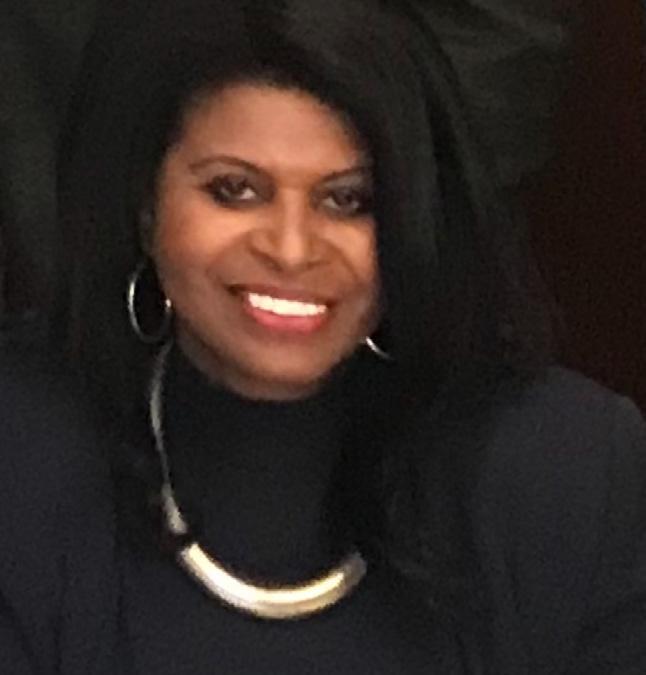


The table below presents the research expenditure distribution across different funding sources for a total amount of $4,867,000. The majority of the funding comes from federal sources, making up 78.5% of the total expenditure. Other sources include state or local funds, nonprofit organizations, and institutional funds, contributing smaller percentages to the overall budget.
• Federal Funding: The largest portion of the research expenditure comes from federal sources, totaling $3,819,000, which represents 78.5% of the total budget. This significant percentage indicates a strong reliance on federal funds for research activities.
• State or Local Funding: Contributions from state or local governments amount to $240,000, accounting for 4.9% of the total research expenditure. This reflects a smaller but essential support from local government sources.
• Nonprofit Organizations: Nonprofit organizations contribute $504,000, making up 10.4% of the research funding. This funding is crucial for supporting various research initiatives that may not be fully covered by federal or state funds.
• Institutional Funds: The institution itself provides $304,000, which constitutes 6.2% of the total research expenditure. This funding highlights the institution's commitment to supporting its research activities internally.
Overall, the total research expenditure is $4,867,000, with federal funding being the predominant source, supplemented by state or local funds, nonprofit organizations, and institutional contributions.
The table below presents the distribution of research expenditures across three types of research activities, totaling $4,867,000. The majority of the funds are allocated to applied research, while basic research and experimental research receive smaller portions of the budget.
• Basic Research: Basic research accounts for $1,342,000, representing 27.6% of the total research expenditure. This research involves experimental or theoretical work undertaken primarily to acquire new knowledge about the underlying foundations of phenomena and observable facts, without any particular application or use in view.
• Applied Research: Applied research receives the largest allocation, totaling $3,484,000, which constitutes 71.6% of the total budget. This research involves original investigations aimed at acquiring new knowledge and is directed primarily towards a specific, practical aim or objective.
• Experimental Research: Experimental research is allocated $41,000, making up 0.8% of the total research expenditure. This category involves systematic work drawing on knowledge gained from research and practical experience, producing additional knowledge that is directed towards creating new products or processes or improving existing ones.
Overall, the total research expenditure of $4,867,000 is predominantly allocated to applied research, with significant investments in basic research and a smaller portion dedicated to experimental research.
The table below presents the research and development (R&D) expenditures at Fisk University, categorized by the originating source of funds. The total R&D funding amounts to $1,150,000, with contributions from both federal
U.S. Higher Education Institutions (Colleges and Universities and Unites Owned, Operated, and Controlled by such Institutions)
• U.S. Higher Education Institutions: These institutions contribute a total of $804,000 to Fisk University’s R&D expenditures, with $803,000 coming from federal sources and $1,000 from non-federal sources. This category represents the largest portion of the R&D funding.
Office of Sponsored Research and Programs continued
• Business For-Profit Organizations: For-profit organizations provide a total of $346,000 for R&D, with $307,000 originating from federal sources and $39,000 from non-federal sources.
• Total R&D Expenditures: The overall R&D funding to Fisk University is $1,150,000, with $1,110,000 from federal sources and $40,000 from non-federal sources.
This distribution highlights the significant role of federal funding in supporting R&D activities at Fisk University, with substantial contributions from higher education institutions and for-profit organizations.
The table below details the distribution of R&D expenditures from various federal sources across different research fields, totaling $3,819,000. The funding sources include the Department of Defense (DoD), Department of Energy, National Institutes of Health (NIH), National Science Foundation (NSF), and the Department of Education. Among the fields, Physics receives the highest total funding, followed by Biological Sciences and Computer Science.
• Computer Science: Received a total of $942,000, primarily funded by NSF ($713,000), with additional contributions from Energy ($193,000) and NIH ($36,000).
• Mathematics: Received $52,000 entirely from NSF.
• Biological Sciences: Received a total of $946,000, with the majority of funding from NSF ($638,000) and NIH ($307,000), and a small amount from Energy ($1,000).
• Chemistry: Received $80,000, with $31,000 from NIH and $49,000 from NSF.
• Material Science: Received $437,000 solely from DoD.
• Physics: Received the highest total funding of $1,362,000, with significant contributions from the Department of Education ($1,128,000), NSF ($185,000), and DoD ($49,000).
Total R&D Expenditures: The overall federal funding for R&D across these fields totals $3,819,000, with the highest contributions from NSF ($1,637,000) and the Department of Education ($1,128,000).This distribution illustrates the allocation of federal funds to various research fields, emphasizing substantial investments in Physics, Biological Sciences, and Computer Science.
Office of Sponsored Research and Programs continued
The tables below provide a breakdown of the total R&D personnel at Fisk University, categorized by gender and education level. The total R&D personnel amount to 153, with a majority being researchers. The gender distribution shows more female R&D personnel than male, and the educational qualifications indicate that most researchers have less than a Master's degree.
• Female R&D Personnel: Comprise 90 individuals, with 88 researchers, 2 support staff, and no technicians.
• Male R&D Personnel: Comprise 63 individuals, with 58 researchers, 4 technicians, and 1 support staff.
• Total R&D Personnel: The total number of R&D personnel is 153, including 146 researchers, 4 technicians, and 3 support staff.
• Doctorate: 28 researchers have a doctoral degree.
• Master's Degree: Only 1 researcher has a master's degree.
• Undergraduate: The majority, 117 researchers, have less than a master's degree.
• Total Researchers: The total number of researchers is 146.
Gender Distribution: The majority of the R&D personnel are female (90), compared to male personnel (63).
Educational Qualifications: Most researchers (117) undergraduate students and it shows the emphasis on faculty-mentored undergraduate research. There is a significant number of researchers with doctorates (28)
This distribution indicates a strong representation of females in research roles and highlights the faculty-mentored research for undergraduate students.

Justice Graduates:
For the past four years, Fisk has offered a master’s degree in social justice—which provides training, research and internship experience over two years to aspiring change agents and professionals committed to social justice work. The Master of Arts degree in Social Justice is designed to prepare students interested in gaining practical tools, specialized skills, and policy knowledge to implement effective strategies maximizing society’s commitment to social justice and human rights. The program builds competencies and skills to transform social inequalities (addressing economic, political, gender, racial and ethnic disparities, etc.) to attain justice in society. Graduates are prepared to pursue advanced degrees or immediately enter careers in research, planning, policy analysis and governmental affairs as well as public interest advocacy and social justice leadership in every social service industry affecting quality of life. Students may consider internships at Nashville’s Community Court/ CARES, the NAACP, Innocence Projects, & the Southern Poverty Law Center, and elsewhere. This past year, the first graduate thesis in social justice was submitted by Anthony E. Grant,
MS (Class of 2023), and four students graduated as the largest cohort to date.
Throughout the fall of 2023, three of the graduates used their master’s degrees to serve as Research Associates at the John Lewis Center for Social Justice and founded “Scholars for Justice” – a social change interest and advocacy group designed to mentor students and pursue research activities that can impact the community. H. Joanna Soderberg, MA (2023) is working with the Rosenwald Schools Project at Fisk’s John Hope and Aurelia Franklin Library, and Anthony Burton, MA (2023) is working with John Lewis Center Data Sciences/Tech Fellow Lena Winfree.


In fall 2023, Social Justice Fellows Lena Winfree and Michelle Eistrup participated in “Shooting for Change: Armed with Data,” a data “hack-a-thon” at Vanderbilt’s “Wond’ry” to investigate options for a gun detection system that would notify police if a concealed weapon comes within 50 feet of a school. The research provided by Winfree in connection with Blacks in Technology, Vanderbilt University and Civic Hacker set the stage for a team of social justice, physics, criminal justice and data/ computer science majors to figure out the best

way to mark or tag guns using chemicals, colors, material markers—and algorithms to track guns after they are tagged. Dr. James Pratt, Associate Professor of Criminology, provided an introduction and overview of research on gun violence, and Vanderbilt police provided Q&A for FAQS before the hack-a-thon began. The research presentation will be repeated in Spring semester during a follow-up data “hack-a-thon” at Belmont University by Lena Winfree and the Fisk-Belmont Social Justice Collaborative.
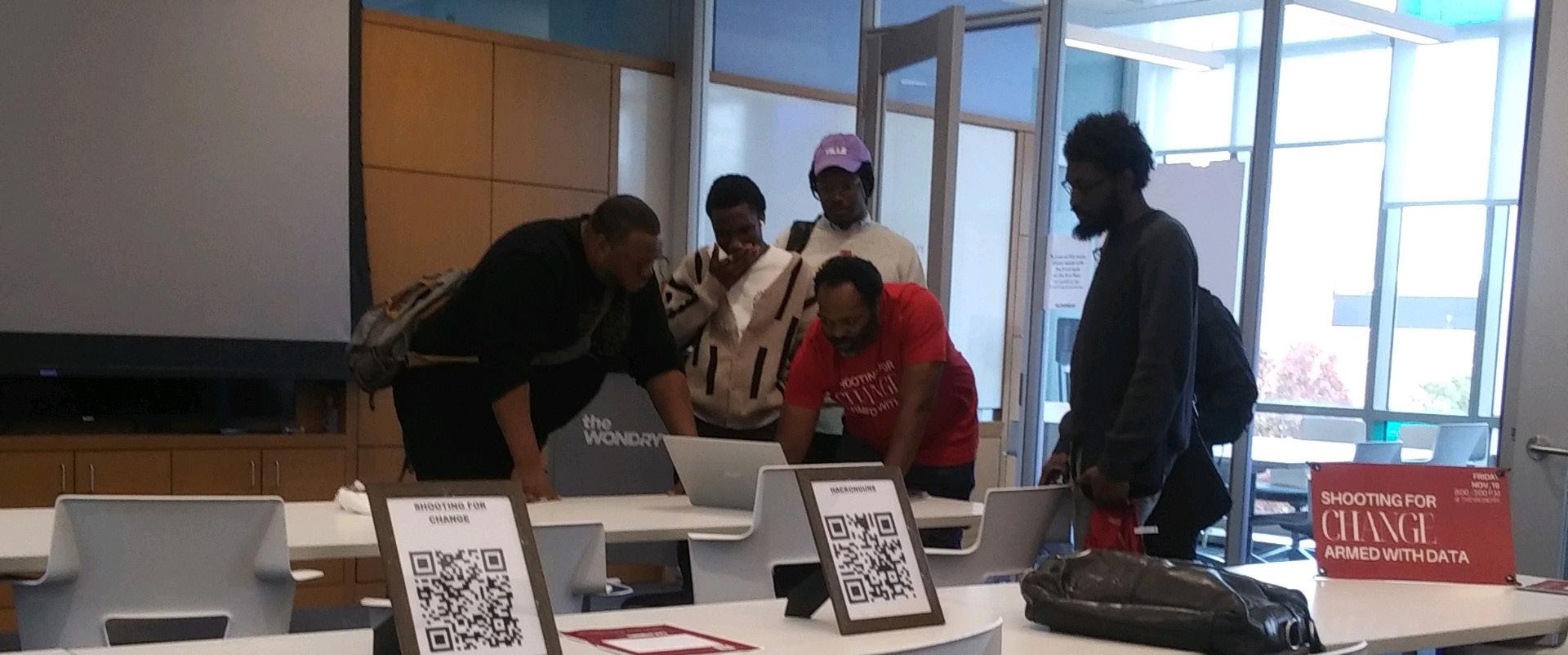
Aaron Douglas Art Fellow Michelle Eistrup organized a W.E.B Du Bois birthday installation and projection (“Four Faces of the Sun, Dikenga”) on the exterior of Franklin Library during Black History Month 2024 by emphasizing her research into Bakongo cosmology—reflecting interviews with scholars such as Robert Farris Thompson and Barbaro Martinez Ruiz. Bakongo gestures are formulas of cultural, spiritual and emotional mearing that “operate like poetry to inspire approaches to life that we can all take inspiration from, regardless of religious belief,” said Eistrup.

Social Justice master’s degree student Morgan Allen (MS 2024) led a team of students surveying audience receptiveness to a new documentary film “Exit 207: The Soul of Nashville,” which investigates what happened to North Nashville after Interstate 40 was built—dividing the community in half and destroying homes, businesses, and vital community institutions. The Fisk-Belmont Social Justice Collaborative team and master’s degree students asked if the issues in the film reflected what audience members had experienced; how it depicted their past and their quality of life; which historical contexts they remembered; and which interviews they enjoyed the most. (Most said they wanted to hear more from Lorenzo Washington—the curator of the Jefferson Street Sound Museum). Results are available through the Social Justice Center.
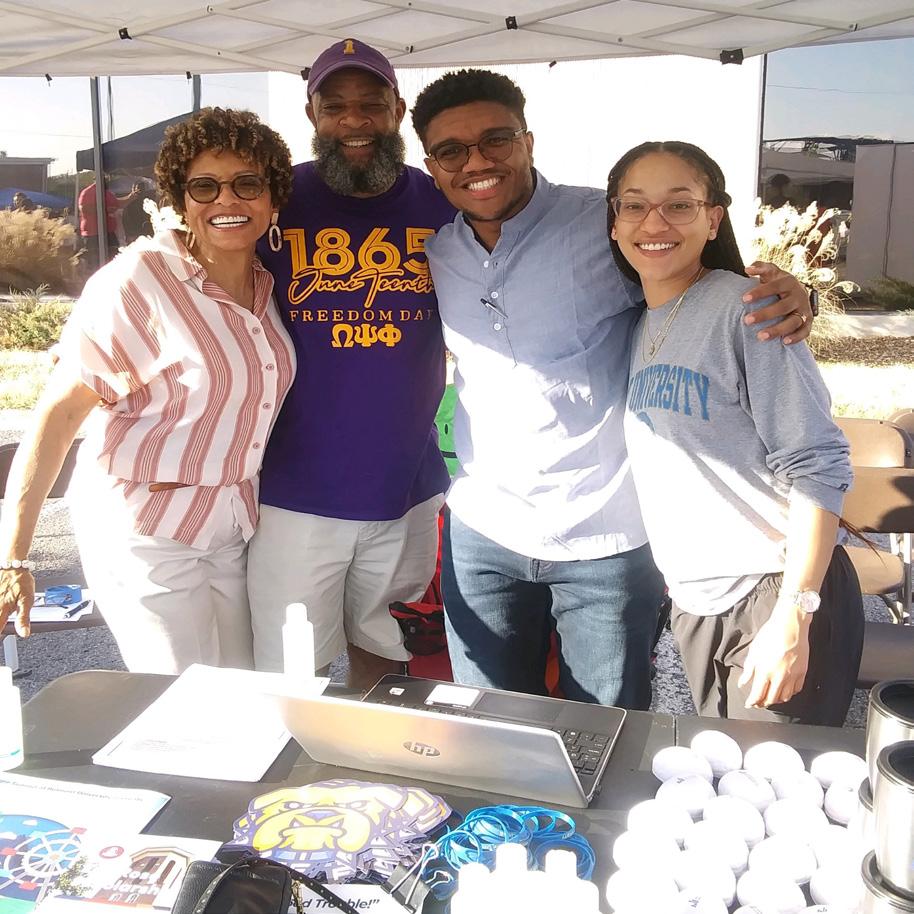
A semi-monthly research newsletter, The Social Justice Report, was launched in fall 2023 to help promote the Social Justice Master’s degree program, to highlight student and faculty research in social justice, and to provide a voice for SOJ graduate students and alumni. Issues reflected student research on mass incarceration in North Nashville; the impact of the burden of rent payment on Black youth in Nashville 37208; evaluating BMI – Body Mass Index –as a source of bias against Black women in the military; Opinion editorials, student observations and spotlights of achievement. The first editions were circulated electronically to supporters, students, faculty mentors, and posted on Instagram and social media sites to assess digital distribution networks that could help unify students and faculty interested in social justice. During Spring 2024 volunteers, alumni, and community supporters will be recruited to help sustain The Social Justice Report throughout the year. For information please contact MAllen23@my.fisk.edu or Rguthrie@fisk.edu.


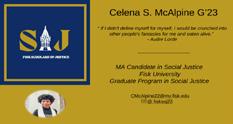
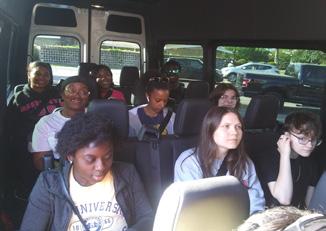
During the summer and fall of 2023, Fisk Social Justice Master’s degree faculty Dr. Ricardo Guthrie and research colleagues at Northern Arizona University (NAU) implemented a two-week seminar on how to teach and talk about race using the iconic Route 66 as a focal point. Funded by the National Endowment for the Humanities (NEH), the “Racialized Spaces on Route 66” project team helped K-12 teachers from all over the country develop lesson plans that will be used as templates for educational programs in local regions—many which have historic roadways similar to Route 66.
Led by co-PIs Dr. Guthrie (Fisk) and Dr. Gretchen McAllister (NAU), the team received $189,000 for a two year project planning and implementation of teacher seminars (2022-2024), which addressed racism and narratives of travel, displacement, migration and fugitivity among Black, Hispanic/Latinx, Asian, and Indigenous communities that lived along Route 66 from 1926 to the 1980s, when the road was decommissioned and bypassed by Interstate 40.
“These stories are very similar to what we experienced in Nashville and all along major highways: For example, Jefferson Street was the most vibrant, economically powerful, and engaged cultural location in Nashville for many decades of the twentieth century,” noted Dr. Guthrie. “And yet, like Route 66 before it--when I-40 was proposed, it sounded the death knell for Jefferson Street businesses, homeowners and the African American community— very much like those diverse, vibrant communities that grew up along Route 66, from Chicago, IL to Santa Monica, CA. You can’t help but think that the I-40 planners purposely punished Black and non-white communities by plotting the highway to run through the heart of these neighborhoods.”
Guthrie and McAllister and Rt 66 scholars designed the NEH Landmarks of American History and Culture project to recruit two cohorts of K-12 teachers from July 9-21, 2023, and created sitespecific lesson plans for learners of all ages. This was the first year the project has been offered by the “Racialized Spaces on Route 66” teaching and
research team, which is actively planning activities leading up to Route 66’s Centennial in 2026.
After visiting “Green Book” sites where “Negro Motorists” could rest safely to escape discrimination and violence while on the road, many teachers investigated how race, and racism, were sometimes more powerful than economics. In Nashville, like many other cities, the Jefferson Street corridor created an economic engine for the city throughout the 20th century: why tear that down when it would cripple the region’s economy?
To address this question, and to expand the research framework to include gender, race and space, Dr Guthrie and Dr McAllister submitted a follow-up NEH Grant for $190,000, hosted by Fisk University’s Office of Sponsored Programs (OSP), to be launched in Summer 2025.
“We need to be able to help teachers develop strategies for creating lessons that make room for having complex discussions that reimagine race, space, and reconciliation,” says Guthrie. “Route 66 provides that platform to be able to talk and compare stories that drive our appreciation of history, culture, geography and biography, together.” The seminar and lesson plans will be made available to national audiences via a website on the Route 66 Road Ahead Foundation website: https://racializedspaces. route66roadahead.org/faculty-speakers/



The newly established Kinesiology program is on the move. This year, the Kinesiology program has added a Trackmaster treadmill and a Cosmed metabolic cart to its lab. The Trackmaster treadmill serves as a crucial tool in metabolic testing, offering precise control over exercise intensity and duration. The metabolic cart allows for precise VO2 max testing. The program also added an ergo cycle ergometer to the kinesiology lab. The ergo cycle ergometer is a staple in kinesiology studies, providing controlled conditions for assessing cardiovascular fitness and muscular endurance. Its adjustable resistance levels and precise monitoring capabilities make it an essential tool for evaluating and improving overall physical performance. Lastly, a DEXA machine was also added to the

kinesiology lab. The DEXA allows for measurement of percent body fat and bone density. With this innovative outfitting, students can not only engage in hands-on experimentation but also gain invaluable insights into the complexities of human movement, paving the way for research and advancements in the field of kinesiology. For more information on the Kinesiology Program, please contact Dr. Andrea Stevenson @ akstevenson@fisk.edu

Dr. Peter Hugo Nelson, Associate professor of Physics, recently received $397,713.00 of funding from the NSF for the “Creation of a Biophysics minor program for STEM success” at Fisk University. The aim of this Targeted Infusion Project is to strengthen the university's ability to recruit, retain, and graduate underrepresented students in STEM by adding a Biophysics minor to existing degree programs. This initiative will provide a new pathway for life-science students to discover how quantitative methods can be applied to the life-sciences.
To get the word out about the project, Nelson attended the 2024 international conference of the Biophysical Society in Philadelphia, PA. He co-chaired the “Biophysics Education” platform session and presented a well-received talk “Biophysics and Computational Modeling in the Undergraduate Curriculum,” which was also presented at a later poster session.
The Biophysics minor uses a novel active-learning pedagogy that includes biophysics and computational modeling as its central theme, topics that are often missing from the undergraduate curriculum. It begins with a two-semester introductory physics sequence “Physics for Life Sciences” that’s being developed by Dr. Nelson. The introductory sequence is followed by two new courses – “Biophysics and Physiological Modeling” and “Experimental Biophysics,”, both of which will be an extension of the introductory courses. They will broaden student knowledge to more complex topics and systems. A “Biophysics Seminar” course will provide a venue for invited speakers to introduce students to current Biophysics research topics, as well as presenting them with professional development and career opportunities. These course-based activities will be supplemented by faculty mentored undergraduate research experiences, which are anticipated to increase student interest in biophysics and STEM related fields generally, resulting
in enhancements in student self-efficacy, self-confidence, and career readiness in STEM.
All life science majors are required to take an introductory course in physics, but the traditional introductory physics sequence was not designed for them. It was designed for physics and engineering students and starts with kinematics – a topic that’s abstract, very mathematical, and not perceived as relevant by most life-science students.
The Biophysics minor uses a novel active-learning pedagogy that includes biophysics and computational modeling as its central theme, topics that are often missing from the undergraduate curriculum.
As a result, students often become discouraged and drop out of STEM disciplines early on. The Biophysics minor aims to increase retention and engagement in STEM by beginning the introductory course with diffusion. We chose diffusion because life-science students already know about its central role from their high school biology courses. The hope is that starting the Biophysics minor with this authentically relevant topic will help students appreciate that physics is relevant to the life-science topics that they care about.
The approach starts with the “Marble Game,” which is a kinetic Monte Carlo simulation of diffusion. Students first learn how to play the Marble Game using a hands-on activity in which the roll of a ten-sided dice determines how ten marbles jump randomly between two boxes. They then implement the Marble Game in an Excel spreadsheet to produce a live graph of the number of marbles in box 1 as a function of time. In a guided-inquiry active-learning environment they are led to discover for themselves that Fick's law of diffusion is an emergent property of the unbiased random jumping in the Marble Game. Throughout the rest of the Biophysics minor, students apply the modeling techniques that they learned from the Marble Game to other life-science topics, such as drug elimination; radioactive decay; osmosis; ligand binding; enzyme kinetics; energy and the Boltzmann factor; phase equilibrium; equilibrium distributions and entropy; random walks; ion channels and membrane voltage; RC circuits and the action potential; models of the spread of COVID-19; and Newtonian mechanics and biomechanics. The materials focus on engaging students in computational activities using kinetic Monte Carlo simulations, finite difference methods and validation of models by comparison with real experimental data from foundational experiments. They enable students to discover for themselves the consequences of model assumptions by reading and interpreting graphs, and by comparing model predictions with experimental data using linear regression and non-linear least-squares fits. A central theme of the material is "thermodynamics from kinetics." For example, students discover the kinetic basis for using pressures as a measure of oxygen chemical potential in blood (oxygen partial pressure) and water chemical potential in fluids (osmotic pressure).
The Biophysics minor is designed to provide STEM undergraduate students an overview and detailed knowledge of how biophysics is applied to applications across the life sciences. It exposes a broad cross-section of life-science majors to quantitative modeling and experimental techniques early in their academic careers. The intent is for students to discover for themselves that

science is an evidence-based endeavor with testable hypotheses that are supported by experiment. The establishment of a Biophysics minor is anticipated to increase Fisk students’ broad interests in STEM related fields, and more specifically in Biophysics, resulting in enhancements in student self-efficacy, self-confidence, and career readiness so that they may pursue STEM graduate programs and/or careers.
Photo: Dr. Peter Hugo Nelson presenting at the Biophysics Education session of the international Biophysical Society Annual Meeting, Philadelphia, PA, February 10-14, 2024.
The past year has been an exciting year for research from the perspective of on-campus thought leadership and international achievement. Dr. Pelly’s goal in 2023 was to democratize research so that anyone – from practitioners to advanced scholars could participate in academic conversations.
Dr. Pelly is excited to share several exciting fait divers that are expanding the frontiers of knowledge. He has enumerated conference attendance, research publications, keynotes, and research exchanges below
2023 was demanding with respect to conferences. Dr. Pelly self-funded to participate in three European Conferences, each of which provided him with feedback from internationally recognized scholars essential for improving the manuscripts he submitted for publication.
The first conference he attended in 2023 was the Storytelling and Collaborative Future Making Forum in Malmo, Sweden. He presented his paper titled, “Heterotopias: Out of Time and Out of Sensemaking”. In this dispersion, he emphasized the role of reasons dark counterpart: unreason; and, he created a framework that highlights the premises behind the behavior of organizations that act outside the boundaries of rationality and are oftentimes to the detriment of their economic self-interest.
Dr. Pelly’s second conference was the Ethical Finance and Sustainability Conference, in Paris, France. At this symposium he presented the paper entitled, “Sadism

dr. david boje
in Foreign Lands: The Burn Pit Atrocity”. He explained how war zones are separated from normal society, and the worst excesses of humanity can be revealed not only by enemy combatants, but also by those who pursue profit over social contract.
The third conference in which Dr. Pelly spoke was the European Academy of Management Conference (held at Trinity College, Dublin), where he presented his paper titled, “Organization and Inequality in Academia: The Revival of Marquis de Sade”. This manuscript focuses upon the role of hidden spaces that create a situation akin to the novel, The Lord of the Flies.
Moreover, Dr. Pelly hosted the 13th Annual Organizational Storytelling Conference at Fisk. The conference had 100 attendees – which included internationally recognized scholars from Denmark, France, Mexico, Peru, Russia, UK, and Canada. The event was an opportunity for Fisk faculty and students to present their research and interact with world renowned researchers. Fisk Faculty attendees included Dr. Duncan Pelly, Dr. Anne Roberts, Professor Nicholas Umontuen, Dr. Sajid Hussain, Dr. Leslie Collins, Dr. Anthony Adamgbo, Dr. Holly Hamby, Dr. Meaghan Rainock, and Dr. Robert Pelly. Fisk student attendees included Mauryce Thomas, Abraham Millian, Cashauna Temple, and Marim Abisoye. International journal editors invited Fisk undergraduates to submit their research to one of two journals, either TELOS or
Organizational Storytelling Review. The conference keynote was the legendary scholar and filmmaker Dr. Stephen Linstead. Dr. Linstead discussed his recently released documentary, Black Snow, which depicted the environmental degradation and human tragedies linked to coal mining in South Yorkshire, England. The conference also included an event at the Fisk Art Gallery hosted by Christine Gostowski, and included a tour that highlighted the scholarly endeavors of the School of Natural Sciences and Mathematics led by Dr. Rudy Gostowski. This conference was successful in large part due to the invaluable support of Mrs. Latreace Wells (from the Office of Career Planning and Development) and Ms. Danielle Brown (from Fisk Information Technology Services).
The Organizational Storytelling Conference was the first international research event that Fisk has hosted in recent memory, and provided unparalleled networking and collaboration opportunities for the Fisk community.
In 2023, Dr. Pelly completed three peer reviewed publications. The first, I Am You, as You are Me: Academic Lives as a Mirror of Ourselves, was co-authored with Dr. Oscar Montiel and Dr. Araceli Almaraz. This was an opportunity to celebrate the accomplishments of one of Dr. Pelly’s mentors, Dr. David Boje. In this work, Dr. Pelly described the ways in which Dr. Boje has used his research not only as a means towards publication, but also to apply his ideas to improve the communities in which he has served.
Dr. Pelly published a paper with Fisk student, Abraham Millian, and his mother, entitled, Moving from Generation to Generation to Generation: Latin American Family Business is a Tamara-Land. In this manuscript we depicted the achievements of three entrepreneurs –a grandmother, a mother, and a current Fisk student as they engage in a journey of intergenerational serial entrepreneurship that transversed the U.S.-Mexico border.
He co-authored the manuscript, Leading Ethical Organizational Leadership and Behavior Through True Storytelling: Towards Ethical Consulting to Guide Business Games with Dr. David Boje and Dr. Usha Haley. In this article they utilized the True Storytelling
consulting methodology to depict ways that organizations can restore a logic of caring in an otherwise cold-hearted corporate world.
Lastly, Dr. Pelly released his first edited book, Business Storytelling in Entrepreneurship, which is the first of a fifteen volume encyclopedia series. In this time, he explored the role that stories play in the entrepreneurial ecosystem – including launching businesses, sustainable innovations, corporate entrepreneurship, and business incubators.
The complete references for Dr. Pelly's recent publications are below:
Montiel Mendez, Oscar; Pelly, R. Duncan M., and Almaraz, Araceli. (2023) I Am You, as You are Me: Academic Lives as a Mirror of Ourselves. In Doing Academic Careers Differently: Portraits of Academic Life. Taylor & Francis.
Pelly, R. Duncan M; Millian, Claudia; Millian, Abraham. (2023) Moving from Generation to Generation to

The Cover of My New Book, Business Storytelling in Entrepreneurship
Generation: Latin American Family Business is a TamaraLand. TELOS Co-Authored with an Undergraduate Student
Boje, David; Pelly, R. Duncan M.; Haley, Usha. (2023). Leading Ethical Organizational Leadership and Behavior
Through True Storytelling: Towards Ethical Consulting to Guide Business Games. Organizational Storytelling Review.
Pelly, R. Duncan M. (2024) A World Scientific Encyclopedia of Business Storytelling Set 1: Corporate and Business Strategies of Business Storytelling Volume 1: Business Storytelling in Entrepreneurship. World Scientific Publishers
In each of his publications, Dr. Pelly used accessible language and actionable insights because he wanted both scholars and practitioners to benefit from the findings of his research.
Dr. Pelly was a keynote speaker for two events hosted by the Universidad Cesear Vallejo (Peru) in 2023. The first keynote was entitled, “Gestión de recursos humanos en la década de 2020: desafíos y oportunidades" and opened the event. At this conference, known as " Il Congresso Internacional de Gestion e Investigacion : From Classical to Modern Management 2023, he discussed several challenges posed by companies in the face of both AI and remote work in the post COVID world.
Dr. Pelly was also the keynote speaker for the conference, “Semana del Administrador VI: Unifying Cultures for Entrepreneurship”. In this keynote he presented “Reviving the Plus Zone Challenge in Entrepreneurship”, in which he overviewed the merits of using post modernism teaching methods in entrepreneurship courses.
In all keynotes, Dr. Pelly utilized his research findings to provide actionable insights that managers can use immediately which was well received by his fellow academicians in Peru.
Lastly, Dr. Pelly was invited to two research exchanges in France – one at EDC Paris Business School and the other at IAE (Institut d’Administration des Entreprises) Lille. During both week-long research exchanges, he met with professors to explore areas of common research interest, gave presentations to graduate students and faculty, and met with administrators to discuss common accreditation challenges.
These research exchanges are key avenues to spread knowledge and engage in benchmarking not only for universities, but also for individuals oscillating between practice and academia.

There are currently 184 Honors Scholars in the Program. They hold GPAs of 3.6 or higher.
Twenty-two (22) seniors are currently writing the Honors Thesis under the advisement of the following faculty mentors: Professor Persephone Felder-Fentress, Professor Shavonte Hammond, Professor Alicia Henry, Dr. Tempest Henning, Dr. Li Quin, Dr. Sajid Hussain, Dr. Steven Damo, Dr. Leslie Collins, Dr. La Tanya Rogers, and Dr. James Pratt.
University Innovation Fellows:
Eight (8) Honors Scholars became University Innovation Fellows (UIF) this past fall along with 241 other students from 63 global campuses:
Caroline Boston, Sopuruchi Ndubuisi, Manisha Basnet, Jaida Brown, Oreoluwa Owoseeni, Dinesh Pandy, Awantika Bastola; and from 2023: Aayush Bhatta, Covenant Adenuga, and Chibuikem Iheagwaram.
This brings Fisk's UIF total to 11 students. Our students completed a 6-week, change-forward course to earn the UIF credentials and designation. Globally there

are 2,910 fellows on 314 campuses worldwide. In April 2024, nine of our fellows will travel to the Netherlands for the annual Meet-Up with 450 other UIFers from across the world.
Honors courses:
Eight faculty members are teaching honors courses this Spring 2024:
Dr. Patrick Rasco, Asian History
Dr. Shirley Brown, Men/Women Relationships
Dr. Renita Davis, Black Women in Literature
Dr. Anne Roberts, Critical Thinking
Dr. Gary Jaeger, Composition II
Prof. Nancy Rasico, Spanish for Healthcare Professionals
Dr. Tempest Henning, Junior Honors Project
Dr. La Tanya Rogers, (1) Introduction to the Honors Program and (2) Senior Honors Thesis.

Six faculty members taught courses during Fall 2023.

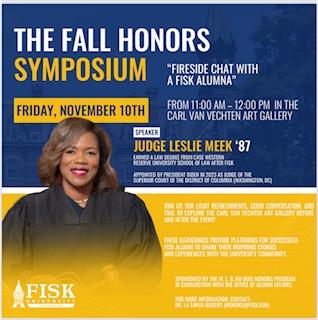
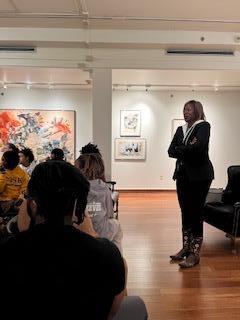
Dr. Jennifer Adebanjo, African American Women in Politics
Dr. Chinyere McGruder, Media, Society, and Culture
Dr. Gary Jaeger, Composition I Prof.
Persephone Felder Fentress, Humanities
Dr. Tempest Henning, Junior Honors Project
Dr. La Tanya Rogers, Senior Honors Thesis
There are nine (9) prestigious awards for which our students usually contend. This school year, we have submitted applications for all nine big awards, with the parenthetical numbers indicated the number of applications we submitted.
The Luard-Morse (1), Mellon Mays (3), Frederick Douglass Global (1), Truman (1), Goldwater (1), Udall (1), Fulbright (2), Rhodes Scholarship (1), and Schwartzman (1). Next

fall, we will also try for the Marshall, Gates-Cambridge, Mitchell, and Pickering.
National review-panel decisions are still pending on our applications to the first seven awards listed above.

The Honors Program hosted two scholarly fireside chats during Homecoming 2023. The first one featured Fisk 2020 alumna Jordan Thompson (who now works for the OWN Network). The second one featured 1987 alumna Leslie Meek (who is a superior court judge in Washington, DC). These events attracted a 78-person, standing-room-only crowd in the Carl Van Vechten Art Gallery on campus.
Four honor scholars attended the NAAAHP (Nat. Assoc. of African American Honors Program) conference in Baton Rouge, Louisiana with Dr. James Pratt. Two of these Honors Scholars won first and third place in the research competition.
Six students attended the Phi Eta Sigma National Convention in Cleveland, Ohio with Dr. La Tanya Rogers. The Fisk University chapter has 130 student members, making it the largest HBCU chapter in the country. There are only 4 HBCUs nationwide with membership in Phi Eta Sigma: Prairie View, Fisk, Hampton, and WinstonSalem State U., chartered in that order.
Professors Patricia McCarroll, Phyllis Freeman and La Tanya Rogers attended the Phi Beta Kappa HBCU Convening at Spelman (with attendance by a few Morehouse, Spelman, and Howard University faculty) to build partnerships and expand the opportunities for HBCU membership in Phi Beta Kappa. The aforementioned schools are the only four HBCUs to have Phi Beta Kappa chapters.
Upcoming events
The annual W. E. B. Du Bois Day is scheduled for February 23, 2024. Three Fisk Alumna from the class of 1974 (Billye Sanders, MaryAnn Franklin, and Robert Dillingham) are coplanning this event with a Fisk team lead by De Lisa Minor Harris and co-chaired by La Tanya Rogers. Our students will be on program along with national Du Bois experts Phillip Sinitiere and Dr. Taharka Ade, assistant professor of African Studies at San Diego State University.
Fork Lift, a Business Etiquette Dinner is scheduled for sometime in February or March. The event is an instructional dining experience for students who will interview over lunch. Mrs. Marcia Dyson is the intended keynote speaker on cultural food trends with Dr. Kenyae Reese as the dinner etiquette coach.
The annual Battle of the Brains competition in Houston, Texas is scheduled for the first week of April. Across the last two years, the Fisk teams have won 1st place ($60,000) and 3rd place ($20,000) under the tutelage of Dr. La Tanya Rogers. The 2024 student team will be constituted this month.
The Honors Convocation is scheduled for April 4, 2024. The seniors who have defended their Honors theses will be corded by the sophomores. The juniors lead the program. All campus honor societies (and their faculty mentors)--plus the Research Day Symposium winners--will be recognized. The event is streamed live on the Fisk YouTube channel.

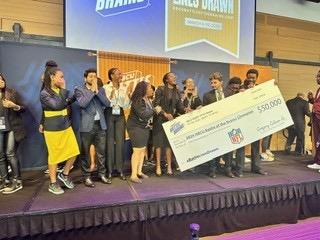




Does our economic situation affect the quality of our sleep?
That’s the question that Fisk undergraduate students Oreoluwa Owoseeni and Rejin Nepal, with supervision from Dr. Qingxia Li, are asking. Their research project, “A Case Study Analysis of Area Deprivation and Sleep Health” uses data from the All of Us Research Program, which hosts one of the largest and most diverse health databases in the country.
“By looking at this connection, we’re hoping to see if we can actually elucidate the systemic factors that influence sleep health in diverse communities,” explained Owoseeni in a presentation of initial findings in Jubilee Hall on February 28th.
The All of Us Research Program, from the National Institutes of Health (NIH), is “an ambitious effort to gather health data
from one million or more people living in the United States to accelerate research that may improve health,” according to the website. The program is intentional about soliciting data from communities that have historically been underrepresented in health research so that the data reflects the full diversity of the country.
Nepal explained the benefits of this growing data set in comparison to others he has used. “In the All of Us data set there was broad data, and for any research idea that I had there was some sort of data in the All of Us data set.”
The goal of All of Us is not just to ensure diversity in the data, but also in who is using the data. That is where the All of Us Researcher Academy comes in. The Academy, offers classes, technical assistance, internships, and other support
for researchers from HBCUs and institutions underrepresented in biomedical research to use the All of Us workbench.
A team at Fisk University, led by Dr. Sajid Hussain, received an award from the Academy, which is funding several projects like Owoseeni and Rejin’s sleep disparities study. A team from the Meharry Master of Public Health program, led by the program’s Director, Dr. Leah Alexander, received an award as well. Dr. Alexander presented on the Meharry project at the February event, discussing how MPH students are using All of Us data for capstone projects on an array of topics.
“Right now we have about 6-8 projects, Dr. Alexander shared. “We’re Meharry, and we focus on health equity and the elimination of health disparities, so all of the projects that are coming out of our team will have that through line in them.”
The February event was part of the All of Us HBCU Road Tour, a series of public events at HBCUs around the country, led by the nonprofit organization Community-Campus Partnerships for Health in collaboration with RTI International. The goal of the road tour is to increase engagement with All of Us and highlight important health research coming out of HBCUs. Al Richmond, Director of Community-Campus Partnerships for Health and moderator for the event, pointed to the sleep study as an example of the potential of All of Us.
“The implications of this are really significant in terms of understanding sleep, sleep deprivation and sleep patterns…That’s what the promise of All of Us really is about, is really understanding the implications of environmental factors and other factors on people, on population health. And we’re able to stratify that and really drill down,” he explained.
Dr. Sula Hood, Senior Research Scientist with RTI International and Co-Lead for All of Us Researcher Academy, presented on the Academy courses, awards, and internships. Celestial JonesParis, PhD from Vanderbilt University Medical Center, walked participants through the All of Us Workbench, the portal through which people can both access and analyze the data. And participants heard from Dr. Karriem Watson, Chief Engagement Officer for the All of Us Research Program.
The video of the event will be available on the CCPH website at https://ccphealth.org/all-of-us-hbcu-road-tour-heads-to-nashville/. If you are interested in learning more about the All of Us Research Program visit https//researchallofus.org/academy_ev. To learn about opportunities with the All of Us Researcher Academy, visit https://academy.researchallofus.org/en
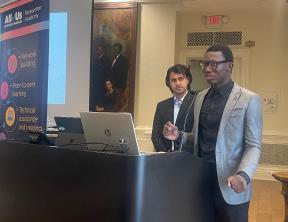
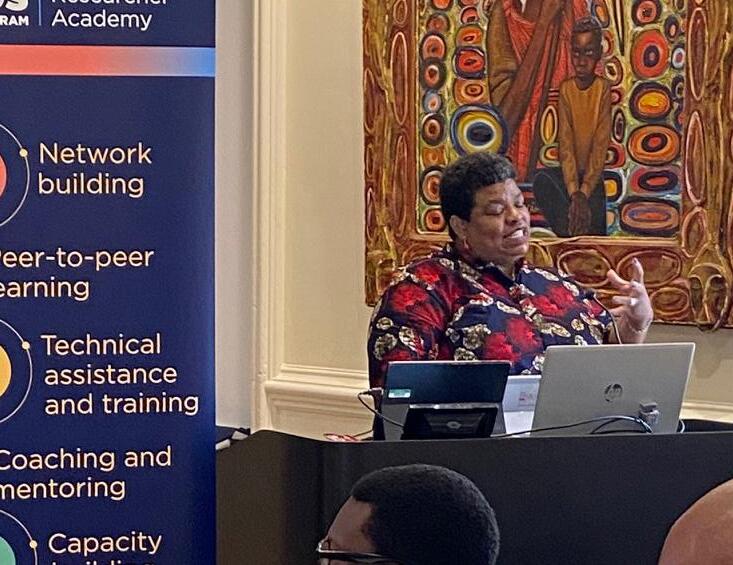

their research on sleep disparities using the All
Al Richmond, Director of Community-Campus Partnerships for Health (on right) moderating questions for Institutional Champions Dr. Leah Alexander from Meharry Medical College, and Dr. Sajid Hussain from Fisk University. (Bottom) Celestial Jones-Paris, Vanderbilt University, walks participants through the All of Us Workbench.


Dr. Qingxia Li, Associate Professor in Mathematics, currently serve as PI for two NSF projects including (1) NSF-ISUE to integrate innovative biological research data into Biostatistics-Fostering STEM interest and retention, and (2) NSF-BCSER project on determining factors that influence African American students’ selection of computational internships and careers, as well as the Project Director and Lead Applicant for a six-year HHMI IE 3 project to substantially and sustainably build capacity for student belonging, especially for those who have been historically excluded from the sciences. Additionally, Dr. Li was selected as a faculty champion by the All of Us Researcher Program to work on the NIH data sets with two undergraduate students, Oreoluwa Owoseeni and Rejin Nepal (Figure 1), at Fisk University. They have been accepted to present “Predicting Income Based on Health-Related Variables” at the 2024 National Conference on Undergraduate Research in Long Beach, California from April 7th-9th, 2024.
In January 2024, Fisk University received $260K funding from Department of Energy Minority-Serving Institution Partnership Program (MSIPP) to support machine learning research at Fisk University. The research team consists of Drs. Lei Qian (PI), Sajid Hussain, Firdous Kausar, and Ning Zhang, as well as Tom Danielson at Savannah River National Laboratory (SRNL). They are using deep learning methods to develop new blind calibration for correcting drifting sensor data. They will also using machine leaning methods to model missing
data from environmental sensors. In the mean time, they will develop interactive user-friendly dashboard based on SRNL data sets and also address cybersecurity problems in the sensor network. The research will help better enhance environmental protection and national security measures.
Machine learning, particularly deep learning, has become the most important technology breakthroughs in the past decade. From pattern recognition like voice and image recognition to generative AI such as ChatGPT, machine learning is rapidly transforming our daily lives at an unprecedented pace. Fisk computer science program began to offering a machine learning course in 2019. Since then,
Fisk is offering three machine learning relative courses targeting different audiences. They are machine learning (CSCI380), CSCI 390-ML (Machine Learning for Social Sciences), and CSCI280 (Mathematical Modeling). Funded by another Department of Energy MSIPP Environmental Alliance Program (PI: Dr. Hussain) and mentored by Drs. Qian and Zhang, Fisk students form a Machine Learning Robotics Club. They are developing deep learning technology on Nvidia Jetson Nano development kit for AI and robotics. They build robots and train deep learning models with real life data. Their robots are trained to follow paths, avoid obstacles, avoid cliffs, recognize and following road signs, Lidar mapping, and many more machine learning tasks.
New Faculty
Dr. Firdous Kausar joined Fisk University as an Associate Professor of Computer Science in Fall 2023, showcasing a distinguished career in cybersecurity and information security that spans across continents. With a Ph.D. in Information Security from the National University of Sciences and Technology (NUST), Pakistan, completed in 2009, her academic journey is marked by excellence and innovation. While pursuing her Ph.D. she enhanced her academic portfolio by serving as a research assistant at the Jodrey School of Computer Science at Acadia University, Canada. Her research, deeply rooted in Blockchain, Digital Forensics, Biometric Cryptosystem, Machine Learning, and IoT Security, reflects a commitment to advancing cybersecurity measures and technologies. Her professional journey from 2008 to 2023 included various academic and research positions across Pakistan, Saudi Arabia, and Oman, contributing to her extensive expertise in the field. Her significant contributions to the field are documented through numerous international journal publications, conference presentations, and active participation in academic accreditations and curriculum development, underscoring her role as a leading figure in computer science education and research.

Dr. Firdous Kausar is actively contributing as a Co-Principal Investigator in the Department of Energy (SNRL)-funded project, focusing on proposing a technique for blind calibration, which may be used to calibrate sensors in challenging or inaccessible situations without ground truth data. She focuses on safeguarding water infrastructure from cyber-physical threats through advanced AI models that secure sensor data and improve reliability in monitoring systems. Additionally, Dr. Kausar mentors three students in applying AI/ML techniques, fostering practical skills and workforce development in collaboration with SRNL Scientist Thomas Danielson, who aids in model validation and application.
In her current role as a Co-Principal Investigator for the NSF-funded project titled " Proto-OKN Theme 1 CollabNext: A Person-Focused Metafabric for Open Knowledge Networks,” with collaborators from prestigious institutions like Georgia Tech, Fisk University, Morehouse College, Texas Southern University, and SUNY at Buffalo. She contributes to the development of a knowledge graph that employs artificial intelligence, machine learning, and human-in-the-loop algorithms to underscore the critical contributions of researchers from HBCUs and MSIs. This project aims to enhance inclusivity and diversity in the scientific community by spotlighting people, research topics, and organizations often overlooked in the science system.
As an instructor for the CSCI-390 Master Peers Instructor course developed under the prestigious Howard Hughes Medical Institute (HHMI) grant, she plays a pivotal role in advancing educational excellence in computer science. This innovative course, aimed at supporting peer
instruction for the foundational CSCI 100 - Introduction to Computing, is a part of HHMI’s broader commitment to fostering inclusive excellence and promoting active learning in science education. By equipping students with pedagogical techniques, presentation skills, and classroom management strategies, the course directly contributes to enhancing the learning environment for introductory computer science courses. Through HHMI’s support, the initiative emphasizes the development of critical thinking and collaborative problem-solving skills among students, preparing them for the challenges of the evolving tech landscape.

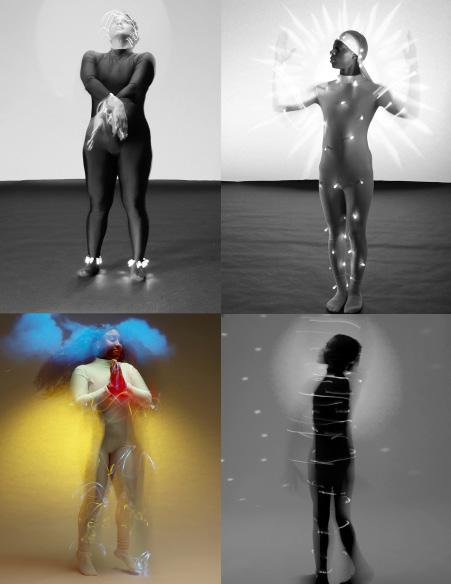

Selene Wendt is an art historian, independent curator, and writer based in Oslo. Her ongoing curatorial focus is on decoloniality and socially engaged art practices, with emphasis on interdisciplinary projects situated at the intersection between contemporary art, music, and literature. For more information, about her work as a curator and writer please visit www.theglobalartproject.no
Michelle Eistrup’s Four Faces of the Sun (2023) is a richly layered work centered around the ideology and symbolism of the Bakongo religion and the Kongo cosmogram, known as Dikenga. This large-scale multisensory installation builds upon Eistrup’s earlier work and her extensive research and interviews with renowned scholars, cultural anthropologists, and art historians. Here, she implements visual, sonic, and kinetic elements in a four-channel video installation that brings the spiritual language and power of Nkisi objects to life.
Stolen from Africa and dispersed throughout Western ethnographic museums, these artifacts (and what they represent spiritually) are also directly connected to the stories and heritage of African Americans living in the southern United States. In a continuation of Eistrup’s ongoing history lesson, she explores entangled colonial histories through a pared-down visual language
that combines movement, dance, and music to convey themes ranging from respect and sorrow to honor, joy, and remembrance. The spiritual significance of Nkisi objects thereby comes to life visually and musically. With dance and movement at the core of this work, the wider implications of the movement of Black bodies takes on multiple layers of meaning—through history, across oceans, and between geographies.
As is often the case with Eistrup’sinterdisciplinary approach to the shared cultural history of the Black Atlantic, Four Faces of the Sun connects bodies across geographies through objects, movement, and sound.
The dramatic poses of the dancers, conceived in direct response to the Bakongo gestures that are symbolized in Nkisi figures, create a strong visual impact against the brightly colored red, yellow and blue backdrops. The work translates to a powerful visual reminder of the direct link between the capture and containment of African bodies and the theft and looting of African artifacts during the colonial era. One can almost hear the gentle whisper of ancestral voices in an extended scream from one side of the Atlantic to the other.
Positioned here, in the American south, on the Fisk University campus, at the very library that houses the original printing plates of W.E.B. Du Bois’s seminal book The Souls of Black Folks, the work takes on additional nu-


ance. These dancers are not simply performing, they are part of a crucial transition from passive observer (of a distant colonial past) to active participant (in a forceful decolonial strategy). As they move across the external facade of the Fisk University Library, they activate and mark a historical site, through gestures and movements that are ultimately linked to the forced displacement of Black bodies from Africa, across the Atlantic, and to the Americas.
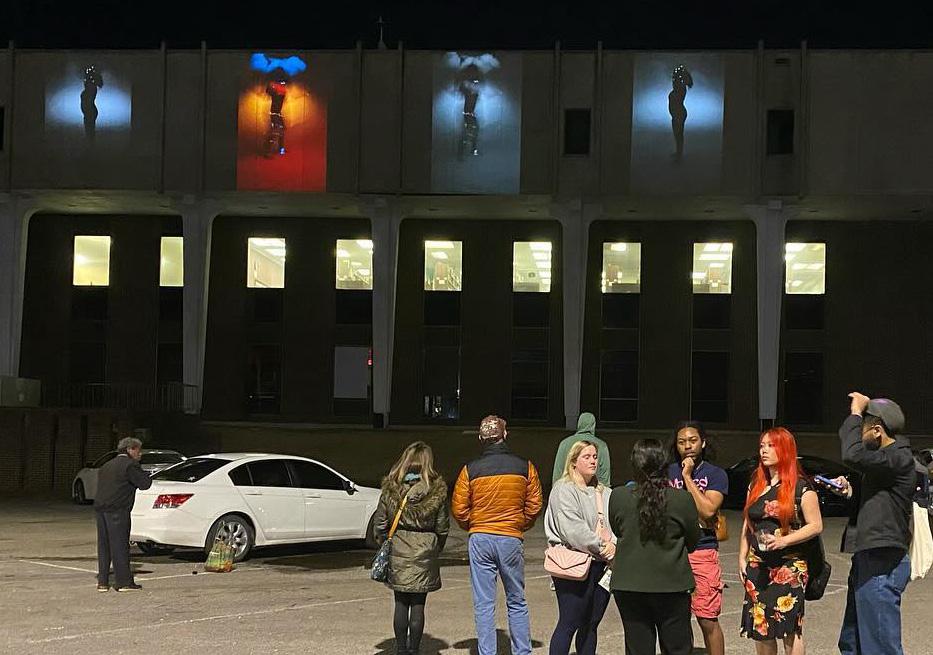

For more information, visit vanderbilt.edu/eadj. Produced with the support of the Schusterman Foundation, the University Galleries and the Discipline of Art, Fisk University, and the Danish Arts Council.
Film credit: Dikenga - Four Faces of the Sun (2024)
• 4-channel Video Installation
• 20 minutes
• A film by Michelle Eistrup
• Dancers: Henry Alumona, Jaila Williams, Qwynn Foster and Thea Jones Cinematography and editing: Michelle Eistrup
• Costume/design assistance: Bryston Lee
• Lighting assistants: Frank Inyiama, Henry Alumona, Simon Tatum
• Music: Anders Juhl
• Berimbau: Cobra Mansa
• Research assistance: Lakesha Calvin and C. Daniel Dawson
• Architect Assistance: Benjamin Busch
Recorded at Fisk University and Begonia Labs, Nashville, Tennessee. Inspired by “Kongo Atlantic Body Language” (2009) by Dr. Barbaro Mártinez Ruíz
Dikenga- Four Faces of the Sun is part of the Engine for Art, Democracy and Justice (EADJ) at Vanderbilt University’s 2022/2023 program, Artistic Activism and the Power of Collective Resistance, curated by Selene Wendt.
Katharine A. Burnett
Between 2022 and 2023, Dr. Katharine A. Burnett, associate professor of English and chair of the Arts & Languages Department, published a series of books and articles that all engage with southern literature and southern cultural representations in ways that reshape and reframe how we think about the role of the region.
One directly features Fisk University: the Routledge Companion to the Literature of the US South (Routledge Press, 2022) boasts a cover image taken from the Fisk University Special Collections. It displays the reading room from the University Library in Cravath. The Aaron Douglas murals can be seen in the background, and in the foreground are Fisk students gathered around books and papers.
The collection itself contains essays written by Dr. Burnett as well as a Fisk alum Dr. Samanda Robinson (‘16), who recently completed her PhD in English at Johns Hopkins University.
A second publication hones in on popular representations of the US South: The Tacky South (LSU Press, 2022) has garnered attention partially for its flamboyant cover, but also for its exploration of southern identity and popular representations of the region. The essays in the collection touch on everything from red velvet cake and Dolly Parton, to reality TV and nineteenth-century literature. As the reviewer Maragaret Eby commented, “[It is] a sharp collection of essays about the tangled world of southern aesthetics, race, and class, The Tacky South is as thought-provoking as it is flat-out fun. It’s as much a cabinet of curiosities as a book, investigating the delights of Dolly Parton, Elvis, plastic flamingos, and red velvet cake and the people that love or loathe them.”
Since The Tacky South’s publication, Dr. Burnett has given talks for it at the Southern Festival of Books in Nashville, TN; the University of Mississippi’s Center for the Study of Southern Culture; Delta State University; and the Mississippi Department of Archives and History in Jackson, MS (among others).
And finally, building on this engagement with southern literature and identity, Dr. Burnett has two recent articles on the topics: one in the 2022 collection, the Cambridge Companion to Literature of the Civil War and Reconstruction (Cambridge UP, 2022) and another on “The Global South” in the forthcoming The New Nineteenth-Century American Literary Studies (Cambridge UP, 2024).
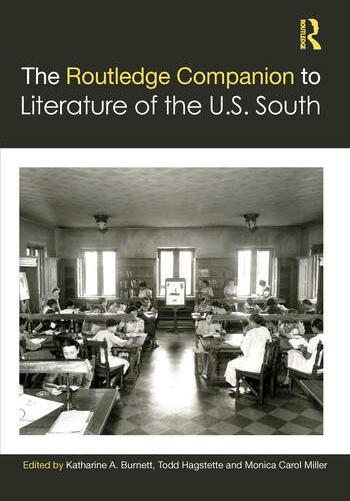
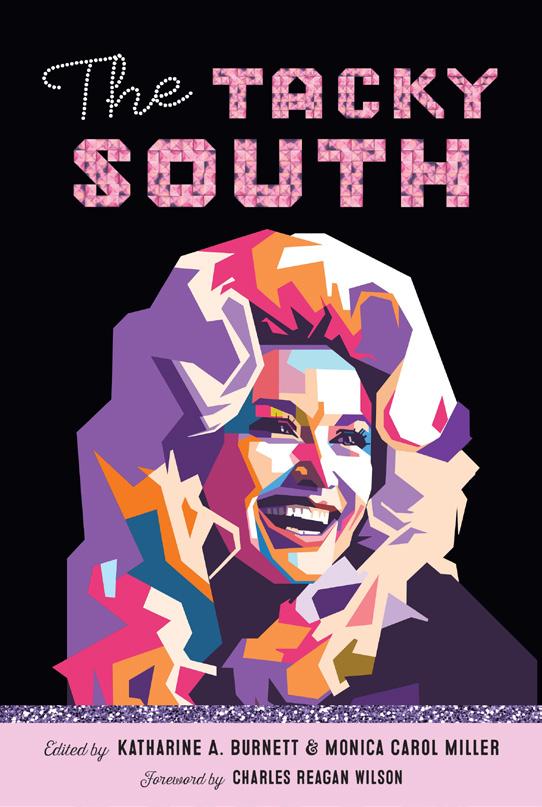
Humanities Department Continued
In 2020, Fisk University was named an institutional affiliate in the CIC Legacies of American Slavery: Reckoning with the Past. This initiative is designed to help CIC member institutions, their students, and their communities explore the continuing impact of slavery on American life and culture. The project supports campus-based research, teaching, and learning as well as community-based programs about the multiple legacies of slavery.

“Investigating North Nashville.” A presentation for the American Studies Association in November 2023 by Drs. Burnett and Collins.
Legacies of American Slavery is directed by Pulitzer-Prize winning historian David W. Blight, Sterling Professor of American History at Yale University and executive director of the Gilder Lehrman Center for the Study of Slavery, Resistance, and Abolition (GLC) at Yale’s MacMillan Center.
Dr. Katharine A. Burnett, along with Dr. Leslie Collins, Associate Professor of Psychology, are the Institutional Representatives for Fisk. Since beginning their work, Drs. Burnett and Collins have collaborated with Sewanee College and partnering CIC institutions to create a series of community archiving courses featuring the North Nashville community. In Spring 2022, they taught “Investigating North Nashville,” in which student groups collaborated with the local Westwood Baptist Church and the Pearl High School Alumni Association to develop a set of community archives that document the history and community in North Nashville.
Drs. Burnett and Collins continue their work on the project, developing community archiving courses and extending their research in the North Nashville area. In 2024, Dr. Burnett received a scholarship from the Rare Book School to attend a course on community archiving, as well as a small grant through the American Council of Learned Societies to support the continuation of her research in the area.
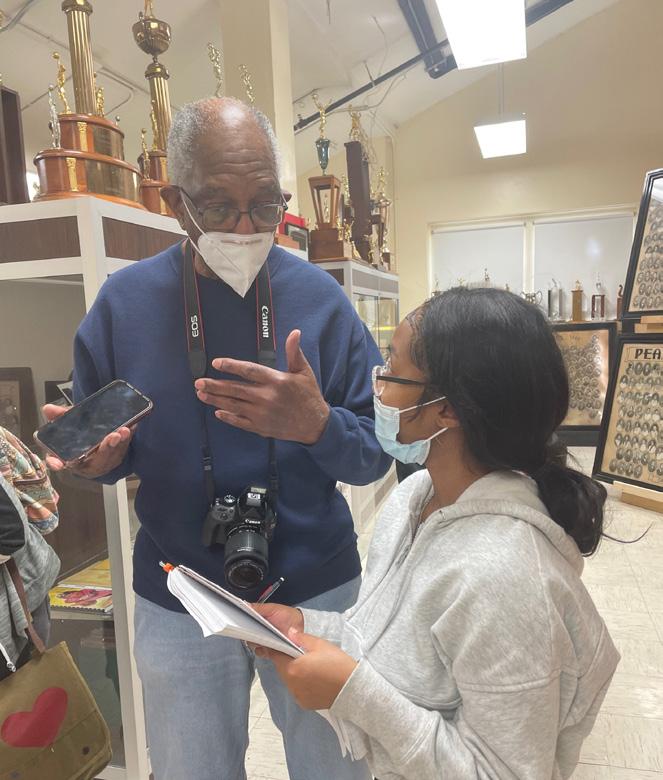

24 th international
In June 2023, Dr. Zeinab Yadegari had the honor of attending the 24th International C. elegans Meeting in Glasgow, Scotland. This esteemed event brought together researchers, scientists, and academics from around the world to share the latest advancements in C. elegans research. The meeting provided an excellent platform for networking, learning, and discussing cutting-edge science related to this model organism.
The conference took place from June 24 to June 28, at the Scottish Event Campus. The event featured a series of keynote lectures, poster sessions, workshops, and social events designed to foster collaboration and exchange
of ideas among C. elegans researchers. In addition to the invited speakers in the plenary sessions and abstract-driven concurrent platform sessions, the meeting featured an equity and inclusion plenary session.

The keynote lectures were delivered by some of the most renowned scientists in the field. Topics covered included recent discoveries in neurobiology, genetics, developmental biology, and aging. One particularly inspiring lecture was given by Dr. Oliver Hobert a Professor of Biological

Sciences at Columbia University, who studies how neurons acquire their unique features and how they can change in response to specific internal and external states.
Several workshops were organized, focusing on advanced techniques in C. elegans research. Dr. Yadegari attended a workshop on new techniques in worm imaging which provided valuable insights into the latest protocols and troubleshooting tips. Additionally, symposia on neuronal cell biology, degeneration, and behavior in C. elegans were particularly relevant to her research interests. These sessions included detailed discussions on genetic pathways and environmental factors influencing worm behavior.
The meeting facilitated networking through organized social events, including a civic reception hosted by the Rt Hon Lord Provost of Glasgow, conference dinner and informal gatherings. These interactions were invaluable for building professional relationships and discussing potential research collaborations.
The conference included an exhibition area where companies showcased the latest technologies and tools for C. elegans research. Some of the featured companies were Nagi Bioscience, WormBase, and Micropublication Biology. A standout feature of the C. elegans conference

is the Worm Art Show, which presents creative and artistic representations of C. elegans by researchers. This unique exhibit beautifully combines science and art, highlighting the intricate beauty of these microscopic organisms and offering a refreshing perspective on scientific visualization.
The trip to Glasgow for the 24th International C. elegans Meeting was highly rewarding, both professionally and personally for Dr. Yadegari. The exposure to diverse topics and methodologies reinforced the importance of interdisciplinary approaches in tackling complex biological questions. The knowledge gained, the connections made, and the insights shared during the event will significantly impact her ongoing and future research endeavors.

The U.S. National Science Foundation National Data Science Alliance is a national network of academic, industry, and government partnerships that will grow the capacity of Historically Black Colleges and Universities (HBCUs) to transform data science discoveries into tangible societal benefits. Systematic change at scale will be catalyzed by engaging HBCU faculty and staff in data science training, curriculum development, and research.
The NSF NDSA is organized into regional hubs: Northeast Hub at Howard University, Southcentral Hub at Fisk University, and Southeast Hub at Clark Atlanta University, with the backbone at the AUC Consortium.
The NSF NDSA will increase the number of Blacks earning data science credentials (e.g., major, minor, certificate, or postbaccalaureate) by at least 20,000 and create equitable data science research, techniques, and models.
Expand data science research and education at Historically Black Colleges and Universities (HBCUs) and develop a national network of HBCUs with industry, government, and academic collaboration to transform data science discoveries into tangible societal benefits that advance equity for all.
Southcentral Hub organized the workshop on “Navigating the Data Science Landscape: The What, Why, and How?”. There were eighteen (18) workshop participants from the following schools: Fisk University, Kentucky State University, Meharry Medical College, Norfolk University, Prairie View A&M University, Southern University and A&M College, Tennessee State University, University of Arkansas at Pine Bluff, Virgin Islands, and Xavier University of Louisiana.
The second workshop was on “Exploratory Data Analysis (EDA) and Data Visualization. The workshop was attended by thirty-four (34) HBCU Faculty and Staff from the

following institutions: Clark Atlanta University, Fisk University, Kentucky State University, Lane College, Langston University, Morehouse College, Philander Smith College, Prairie View A&M University, Southern University and A&M College, Southern University at New Orleans, Tennessee State University, Texas Southern University, University of the Virgin Islands, Wiley College, and Xavier University of Louisiana.
Further, Dr. Sajid Hussain, Southcentral Hub Lead is taking the lead for Bias, Equity, Validity, and Inclusion Committee. The objectives of committee are as follows:
• Develops a policy regarding bias, equity, and validity concerns.

• Provides advice about ethics, responsibilities, and data tools for the Alliance relevant to data-oriented bias concerns.
• Informs the development of programs to build diversity within the profession.
• Identifies and organizes activities to promote awareness of and education about such issues.
• Ensures that these issues are considered systematically throughout the NDSA and other interested parties.
• There are 12 members, and the committee is chaired by Dr. Hussain (Co-PI, Southcentral Hub Lead).
Ricardo Guthrie
Rachele Hendricks-Sturrup
Sajid Hussain [Chair]
Phyllis Keys
Xiangfang Li
Oyebade Oyerinde
Widodo Samyono
Janett Walters-Williams
Gloria Washington
Gabriella Waters
Fisk University
National Alliance against Disparities in Patient Health
Fisk University; Co-PI National Data Science Alliance
Morgan State University
Prairie View A&M University
Clark Atlanta University
Jarvis Christian College
Hampton University
Howard University
Morgan State University
NAME UNIVERSITY-AFFILIATION
Felisha White
Kevin Womack
Amy Yeboah Quarkume
Spelman College
Morehouse College
Howard University
The Materials Science and Application Group (MSAG) in the Department of Life and Physical Sciences (Physics Division) at Fisk University focuses and targets materials engineering to produce advanced compounds in scintillators, semiconductors, and laser crystals with lower cost, better performance, and higher efficiency. Most of our recent research has been in the area of improving inorganic scintillators, which are inorganic compounds that convert ionization radiation energies to photo signals. Scintillators play a broad important role in high-tech applications, such as medical imaging, homeland security, space exploration, oil well logging, and mineral discovery, as well as high industrial applications. All advanced material science engineering applications seek the best compound that offers the optimal performance close to an ideal scintillator. Our past and current fundings have come from US Department of Energy (DOE), Defense Threat Reduction Agency (DTRA), National Aeronautics and Space Administration (NASA), US National Science Foundation (NSF), and Air Force Office of Scientific Research (AFOSR). We are one of the pioneers in the discovery of advanced compounds that closely approach the so-called ideal scintillators. The research work, from processing raw materials to fabricating laboratory prototypes or devices, are carried out by the MSAG personnel, including Drs. Arnold Burger, Rastgo Hawrami, and Elsa Ariesanti, as well as a postdoctoral research associate, research laboratory assistants, and graduate students. Members of MSAG have amassed over five hundred publications, with over two hundred peer-reviewed journal articles, and several awarded U.S. patents. MSAG is always looking forward to collaborating and submitting winning proposals with researchers from Fisk University, as well as from other academic institutions like Tennessee State University, Harvard University, Kansas State University, Pennsylvania State University, Oregon State University, and Illinois State University among many others, and national laboratories such as Brookhaven National Laboratory, Savannah River National Laboratory, and Army Research Laboratory.
Since 2021 Fisk University has been a member of DTRA Interaction of Ionizing Radiation in Materials University
Research Alliance (DTRA IIRM URA, 2020-2025; annually $225k for a five-year total of $1,250k), led by Pennsylvania State University. In this alliance, one of the research foci of Fisk University is on improving the growth and properties of the most advanced dual mode world record elpasolite scintillator Ce-doped Tl2LiYCl6 (TLYC). Fig. 1 shows a large (1 inch) diameter single and transparent TLYC grown boule that was cut into several samples, giving excellent detector performance. Drs. Hawrami, Ariesanti, and Burger attended the second DTRA IIRM Annual Research Meeting in Penn State University on July 10 - 13, 2022 (Fig. 2a), where Dr. Hawrami presented the most recent results on the growth and performance of large diameter TLYC crystals.
The results were also presented at the 2022 IEEE Nuclear Science Symposium in Milan, Italy on November 7, 2022 (Fig. 2b).
In 2022 Fisk University became a member of Partnership for Radiation Science Consortium (PaRS, 2022-2027, total $1,389k) led by Alabama A&M University, with Savannah River National Laboratory (SRNL) and Pacific Northwest National Laboratory (PNNL) as partners. This 5-year consortium is one of many sponsored by the Department of Energy Minority Serving Institution Partnership Program (DOE MSIPP) last year. Drs. Hawrami, Ariesanti, and Burger attended the kick-off meeting in Alabama A&M University on November 3, 2022, to discuss the projects and schedule in this new collaboration. For this consortium Fisk University will study new elpasolite scintillator crystals for homeland security detection and imaging applications.
In 2022 Fisk University also received a new grant from AFOSR to study radiation damage on novel semiconductor cesium lead halides (2022-2025, total $400k). Materials grown and processed at Fisk University and irradiated at Vanderbilt University’s Institute for Space and Defense Electronics (ISDE) will be characterized to determine the level of radiation damage in these new crystals.
25th Annual

Fisk University is renowned for engaging students in research and scholarly activities. Empirical research and scholarship are grounded in our academic curriculum, campus support services, and community activities. Our faculty, students and administrators emphasize the discovery and advancement of knowledge through research in the natural and social sciences, business and the humanities. The research symposium is a venue to disseminate and share scholarly contributions with other researchers and scholars. As research contributions and best practices are presented from several disciplines, it provides opportunities for inter-disciplinary research and collaboration. The poster presentations and dialogue with the researchers shows Fisk’s commitment for critical thinking and inquiry-based learning. Further, it strengthens the idea of serendipitous education - acquisition of knowledge in a positive and affirming learning environment. The annual Fisk Research Symposium was first organized in 1999. First, we greatly appreciate your support for the 25th Annual Fisk Research Symposium, April 3, 2024. Our students showed amazing academic excellence. There were eighty-five (85) Oral and Poster Presentations. Students from all departments and classifications (freshmen, sophomore, junior, senior, and graduate) were represented. The Plenary Keynote presentation, “Unleashing the Power of Curiosity: The Impact of Research” was presented

by Dr. Quincy Quick, Associate Vice President Research and Chief Research Officer of Tennessee State University. There were special sessions of “Applying to Graduate School” and Robotics Demonstrations.
We highly appreciate the support of Faculty members in mentoring students to present their research work to the University audience. We are grateful to colleagues who offered their classrooms and served as judges for panel discussions and oral presentations. Also, special thanks to colleagues who encouraged their students to review poster presentations.
We highly appreciate the support of all judges and moderators: Dain Beezer, Katharine Burnett, Eugene Collins, Leslie Collins, Rolande Dathis, Tsehay Demeke, Holly Hamby, Rastgo Hawrami, Sajid Hussain, Firdous Kausar, Lee Limbird, Patricia McCarroll, Marcia Millet, Liviu Matei, Brian Nelms, James Pratt, Lei Qian, LaTanya Rogers, Andrea Stevenson, Anne Taylor, Akira Ueda, Nicholas Umontuen, Bryan Wallace, Zeinab Yadegari, and Ning Zhang.
We thank Dr. Arnold Burger for providing financial support for printing posters. Mr. Constantine Coca graciously printed all the posters in a timely manner. Mr. Vladimir Buliga, Mr. Constantine Coca, Dr. Eugene Collins, and Mr. Liviu Matei assisted in the setting up of poster boards. Ms. Veronica Kizer and Ms. Diedra Gobins promoted the event using mailing lists and managing refreshments. The Office of Career Services,
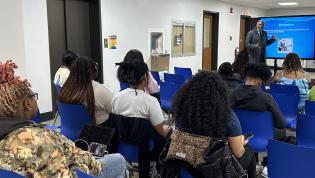

Ms. Latreace Wells and her staff members, assisted in recording “Professional Development Hours”.
We thank our Provost Robert Carr for providing the guidance and mentoring in organizing the research symposium. Finally, the program would never be possible without the support and leadership of our President Agenia Walker Clark.
It was great teamwork!






2024 fisk research symposium
*Computer and Data Science I
oral presentations
*Bioinformatics
Charles Owens, “SentiJournal – A Sentiment AnalysisDriven Digital Journal"
*Computer and Data Science II
Ajay Pokharel, “SmartNotes: GenAI in Classroom”
*Computer and Data Science III
Timia Raines, “InclusiPlan: Transforming Special Education with a Unified Digital Application”
Oluwatofiyinfun Soneye, “Identifying organotypic and disease-specific vascular cell populations and molecular signatures in two diseased and healthy arterial tissues”
*Chemistry
Alysa Christian, “Multi-domain molecularly imprinted polymeric nanoparticles (MIP-NPs) capable of selective capture and release of per- and polyfluoroalkyl substances (PFAS) from environmental water sources”
oral presentations (continued)
* Graduate Physics
Justice Stewart, “Effects of Gamma Ray Radiation on Newly Discovered CsPbBr3 for Room Temperature Semiconductor Detectors”
*Social Justice
Aaliya Riddle, “Privacy, Protection, and Menstrual Tracking Apps: How Safe Is Your Data?”
*Business Administration
Dabeluchukwu Okolo, “Understanding Credit from the Perspective of Immigrants in the US".
*Prestigious Scholarships and Honors
Nicole Hart, “Perceptions, Black Students, and Discipline in Rural Schools".
poster presentations
Department of Arts & Languages
*English
Mya Jennings , “Disability Accommodations at Fisk University: A Research Study”, Best Oral Presentation
Department of Behavioral Science & Education
*Psychology
Nicole Hart, “The Relationship Between Personality and Adaptability”, Best Poster Presentation
*Criminal Justice
Mon-El Ellis, Fighting on Whose Terms?: Domestic Violence (DV) and State and Institutional Power for Remedy, Best Oral Presentation
Abraham Millan, “A Tale of Two Sides of Entrepreneurship: Starting in Mexico and Continuing in the United States”, Best Oral Presentation
Prestigious Fellowship Program
Chaunece Reed, Fatphobia, Contemporary Media and Fat Black Women: When Mean Acts Follow Mean Acts, Best Oral Presentation



Implementation Project: Achieving Greater Confidence and Competence in Quantitative and Computational Skills in STEM Disciplines at Fisk University
Award Number:1817282; Principal Investigator: Lee Limbird; Co-Principal Investigator: Brian Nelms, Saumya Ramanathan, Sajid Hussain, Princilla Evans, Clarlynda Williams-Devane; Organization: Fisk University; NSF Organization: EES Start Date:07/01/2018
Award Amount: $2,214,490.00.
Implementation Projects provide support to Historically Black Colleges and Universities (HBCUs) to design, implement, study, and assess comprehensive institutional efforts to increase the number of students receiving undergraduate degrees in science, technology, engineering and mathematics (STEM) and enhance the quality of their preparation by strengthen education and research. The project at Fisk University seeks to build on previous successful efforts to increase participation of African-American students in STEM disciplines. The goal of the project is to increase the quantitative and computational confidence and competence of undergraduates, with a particular emphasis on biologically relevant sciences in all STEM disciplines, to meet the evolving needs of those disciplines so as to attract, prepare and sustain under-represented undergraduate STEM majors for post-graduate training and careers.
The project has the objectives to: increase faculty confidence and competence in quantitative and computational approaches in the natural sciences and, reciprocally, increase awareness of contemporary problems in the biologically relevant life sciences for faculty in mathematics and computer science; develop and study the transdisciplinary Community of Practice model, which is modified to include a reciprocal, semi-structured instructional component; increase student confidence and competence in quantitative and computational approaches by early introduction of these tools into the required curriculum; and sustain and enhance deeper learning in gatekeeper courses using Supplemental Instruction. Each objective is supported by a set of evidence-based strategies and activities, some of which will be studied for effectiveness in the setting of this university. The project will be advised and evaluated for effectiveness by internal and external advisory boards and by an evaluator.

2112556; Principal Investigator: Arnold Burger; Co-Principal Investigator: Brian Nelms, Dina Stroud, Steven Damo, Saumya Ramanathan, Rastgo Hawrami; Organization: Fisk University; NSF Organization: EES Start Date:09/01/2021
Award Amount: $5,000,000.00.
The Centers of Research Excellence in Science and Technology (CREST) program supports the enhancement of research capabilities of minority-serving institutions through the establishment of centers that effectively integrate education and research. CREST promotes the development of new knowledge, enhancements of the research productivity of individual faculty, and an expanded presence of students historically underrepresented in science, technology, engineering, and mathematics disciplines. With National Science Foundation support, Fisk University strengthens the Center for Biological Signatures and Sensing (BioSS). The Center develops sensor technology that increases the knowledge and development of biological, chemical, and nuclear sensors for biological applications.
Each of three research areas engages a multidisciplinary team of natural scientists partnering with mathematicians and computer scientists to develop or adapt new tools to solve high profile biological problems. The Center enhances Fisk University curricula to include emerging topics in biological sensors and materials science. The project provides research experience, professional development, mentoring and career guidance for a diverse and new generation of students in the emerging areas of sensor technology.
The Center articulates three research subprojects addressing biological sensing modalities that are the basis of the next generation of sensors serving a multitude of applications. Subproject 1 focuses on genetic signatures and sensing of cellular identity and function in dopamine neurons in actively proliferating mammalian cells. This team uses various combinations of genetically encoded sensors, transcriptional profiling, and microfluidics to determine epigenetic modifiers of gene expression, and therefore of cellular function and behavior. Subproject 2 develops biochemical mechanisms of metal sensing from structure-function relationships of proteins to cellular homeostasis. This team integrates biophysical, biochemical, and computational approaches to reveal the molecular basis for protein-metal interactions and their role in the regulation of fundamental biological processes, extending previous work focused on manganese to include iron, copper, and zinc. Subproject 3 develops and implements novel radiation sensors for biological applications. This team continues the material discovery component and further develops dual-energy x-ray absorptivity handheld sensors and micro-cameras providing chemical specificity, detection of biogenetic molecules, and other assays involving gamma and neutron spectroscopy applications

1955975; Principal Investigator: Saumya Ramanathan; Co-Principal Investigator: Saumya Ramanathan; Organization: Fisk University; NSF Organization: MCB Start Date:06/15/2020
Award Amount: $493,036.00
Sequencing of the human X chromosome has revealed the existence of many genes that have a unique expression pattern; they are usually expressed in the testis and aberrantly expressed in proliferative tissue, such as cancer. This project proposes to study one family of these genes, the X-antigen gene family (XAGE) whose functions are completely uncharacterized. The overarching goal of this project is to discover the biochemical function of XAGE proteins and to determine the molecular processes that drive their expression. Consistent with Fisk University?s mission to provide students with every tool they need to emerge as future scholars and leaders, this research program will provide Fisk undergraduates with the hands-on opportunity to obtain interdisciplinary scientific knowledge as well as the technical and problem-solving skills that they need to successfully transition to post-undergraduate education and a career in the sciences. In addition to providing faculty mentored research in the investigatos's own laboratory, some of these research concepts and their applications will be introduced in a course-associated laboratory. This project focuses on identifying the underlying mechanisms that cause certain genes on the X chromosome to be expressed only in certain cells at certain times, an area of research that due to its wide scope, is particularly appealing to undergraduate students interested in biological science.
X-antigen genes are located on the X-chromosome and considered to be cancer-testis antigens due to their expression in testis and aberrant expression in proliferative cells. These genes have recently evolved, and their biochemical function and mechanisms regulating either expression is entirely unknown. Using a combination of biochemical and genetic approaches such as tandem affinity IP-Mass Spectrometry and RNA-Sequencing the investogator will determine the biochemical functions of XAGE proteins and those signaling pathways that are perturbed upon aberrant expression. To determine the transcriptional networks and epigenetic mechanisms that lead to this
unique expression pattern of XAGE genes, the investigator will perform bioinformatics analysis of methylome sequencing data and promoter elements and then using wet-lab experiments determine the transcription factors that bind to XAGE gene promoters to drive expression. The research will also discover which cis-acting elements, such as enhancers, regulate XAGE expression using Pro-Seq to compare chromatin accessibility in cells expressing XAGE genes versus those that do not. The proposed research will determine whether XAGEs have evolved to provide cells a proliferative or survival advantage and if so, what mechanisms drive their expression.

Beginnings: Creating and Sustaining a Diverse Community of Expertise in Quantum Information Science (EQUIS) Across the Southeastern United States
Award Number:2322593; Principal Investigator: Lei Qian; Organization: Fisk University; NSF Organization: ITE Start Date:10/01/2023
Award Amount: $90,031.00
The project aims to serve the national interest by introducing Quantum Information Science and Engineering (QISE) education to partnering institutions in the Southeastern United States. Quantum technology, using QISE concepts, has the potential to change the world. For this emerging field, educating the workforce and broadening participation in QISE now are crucial to prepare future generations for related emerging technology fields and enabling the development of QISE practical applications. Five universities ? the University of Tennessee at Chattanooga, Middle Tennessee State University, Tennessee Tech, Fisk University, and Auburn University ? have assembled a team of experts to provide QISE training to community colleges and universities in the Southeast, including first-generation college students, women, and historically underrepresented populations in STEM.
The project will focus on four main thrusts: experiential learning in QISE, QISE workforce development, fostering regional QISE partnerships, and broadening QISE participation. The teaching model embraces three elements: a tailored quantum computing curriculum, experiential learning, and a strong mentorship network. The curriculum culminates in a multi-tier online certificate program, providing learners with the flexibility needed to master technical nuances at their own pace. Theoretical learning is complemented by a hands-on approach via workshops, faculty-guided research, and exposure to national labs and industry experiences. By establishing a replicable methodology for experiential learning, the project serves as a blueprint for similar programs where access to QISE education remains limited. To ensure sustainability, the project will actively engage local, regional, and national companies, labs, and organizations. This project aligns with the NSF ExLENT Program, funded by the NSF TIP and EDU Directorates, as it seeks to support experiential learning opportunities for individuals from diverse professional and educational backgrounds to increase their interest in, and their access to, career pathways in emerging technology fields.

Research Initiation Award: Development and utilization of fluorescent biosensors for dopamine sensing in Caenorhabditis elegans
2200488; Principal Investigator: Zeinab Yadegari; Organization: Fisk University; NSF Organization: EES Start Date:08/15/2022
Award Amount: $298,336.00
The Historically Black Colleges and Universities Undergraduate Program (HBCU-UP) through Research Initiation Awards provide support for junior and mid-career faculty at Historically Black Colleges and Universities who are building new research programs or redirecting and rebuilding existing research programs. It is expected that
the award helps to further the faculty member's research capability and effectiveness and improve research and teaching at the home institution. This award to Fisk University provides an opportunity to develop tools that can detect dopamine with high spatiotemporal resolution, thereby enhancing the extent to which its impact on neural circuitry can be analyzed. Utilizing Caenorhabditis elegans (C. elegans) as a model organism, genetically encoded protein sensors and non-genetically encoded nanosensors will be developed, characterized, and used to investigate signaling mechanisms of cognitive function and animal behavior. This project also provides an opportunity to train undergraduate students, thereby contributing to the next generation of scientists who can contribute to scientific innovation, creativity, and productivity.
Dopamine (DA) is an important neurotransmitter involved in many different conserved signaling functions across the animal kingdom, including humans. Despite its well-known importance in processes including motor control, reward-motivated behaviors, and learning, there remains a dearth of tools to tracking DA levels or the activity of DA neurons in vivo. This project aims to develop DA biosensors in C. elegans that can precisely measure the spatiotemporal content of DA. Genetically encoded and synthetic DA biosensors will be developed to contain fluorescent components that will emit light upon the release of DA. After release of DA from presynaptic vesicles, DA will bind to the receptor and result an increase of florescent intensity. The synthetic DA nanosensors include a) single-walled carbon nanotube sensors (nIRCat) and b) carbon dot (CD) sensors. Binding of DA to nIRCat will increase its fluorescent intensity. Moreover, CDs will be used in combination with MnO2 nanosheets (NSs). CDs are naturally photoluminescence and can be quenched by MnO2 NSs. However, DA can transform MnO2 NSs into Mn2+ ions and result in the recovery of the photoluminescent signal. Florescent microscopy of the transgenic worm (dLight) and in the presence of synthetic biosensors, will enable dynamic tracking of DA in the live animal. These biosensors will be developed, optimized for C. elegans and their toxicity and efficiency will be investigated. Utilization of DA biosensors in combination with optogenetic manipulation of neuronal activity will support further inquiry on the spatiotemporal transmission of DA at the single cell level.

BCSER: Investigating Factors that Influence African American Students’ Selection of Computational Internships and Careers
Award Number:2114660; Principal Investigator: Qingxia Li; Co-Principal Investigator:; Organization: Fisk University; NSF Organization: DGE Start Date:08/15/2021
Award Amount: $304,761.00
The project is designed to enable the principal investigator to conduct an exploratory research project while acquiring skills and competencies to conduct robust STEM education research. The research component will examine factors and experiences that impact African American students? decision to pursue careers that require quantitative and computational skills. The mentored professional development component will provide the investigator with expertise in qualitative research design and methods and with the design of an experimental intervention. The project will be implemented in three phases: (1) building capacity in qualitative research methods, design-based research, and analytic techniques of qualitative data; (2) collecting interview and qualitative data with the guidance of mentors; and (3) framing a pilot intervention to increase African American students' interest in majors and careers that emphasize competencies in quantitative and computational sciences. In addition to expanding the base of scholars from Historically Black Colleges and Universities conducting STEM education research, the project will advance the understanding of the experiences and career decision-making process of African American students seeking computational careers and internships.
The hypothesis guiding the research is that a structured college curriculum, extra-curricular programs and activities, African American role models and peer influence, sense of belonging and self-efficacy, faculty advising, and effective recruiting strategies are the variables that positively impact African American students? awareness of and interest in computationally related majors and careers. The investigator will use a triangulation of perspectives to examine the factors that influence African American students' career trajectories from the perspectives of students, STEM faculty at Fisk University, and industry recruiters. The qualitative data analysis will examine what and how social, cultural, and contextual factors impact African American students' career selection in computing and math-related careers. The investigator will analyze data from interviews and focus groups and apply a designbased methodology to frame the proposed intervention - a Computational Career Alliance that will serve as an infrastructure to build internal capacity to conduct STEM education research at a Historically Black College and University. The intervention also can potentially broaden the participation of African American students in STEM majors and careers.
The project is supported by the ECR: Building Capacity in STEM Education Research competition of the EHR Core Research (ECR) program. ECR funds fundamental STEM education research projects that address STEM learning and learning environments, broadening participation in STEM fields, and STEM workforce development.

Targeted Infusion Project: Creation of a Biophysics minor program for STEM success
Award Number:2306506; Principal Investigator: Peter Nelson; Co-Principal Investigator: Steven Morgan; Organization: Fisk University; NSF Organization: EES Start Date:10/01/2023
Award Amount: $3397,713.00
The Historically Black Colleges and Universities Undergraduate Program (HBCU-UP) through Targeted Infusion Projects supports the development, implementation, and study of evidence-based innovative models and approaches for improving the preparation and success of HBCU undergraduate students so that they may pursue science, technology, engineering, or mathematics (STEM) graduate programs and/or careers. The project at Fisk University seeks to strengthen the university's ability to recruit, retain, and graduate underrepresented students in STEM by adding a Biophysics minor to the existing degree programs. The program has the potential to offer a new pathway for life-science students to discover how quantitative methods can be applied to life-science applications of physics.
The primary goal of the project is to create a Biophysics minor program for STEM undergraduate students to gain an overview and applied knowledge of biophysics. The program is designed to present quantitative modeling and experimental techniques to a broad cross-section of life-science majors early in their academic careers. Two new courses will be launched, Biophysics and Physiological Modeling? and Experimental Physics course, of both of which will be an extension of the introductory courses, yet broaden student knowledge in more complex systems including, osmosis, ligand binding and least-squares fits, diffusion using finite-difference computational methods, equilibrium distributions and entropy, energy and the Boltzmann factor, and the membrane voltage potential of transmembrane proteins. Professional development opportunities for students will be made available through the ?Biophysics Seminar? course, where invited speakers will introduce students to current research topics in Biophysics research, as well as career opportunities. These activities, coupled with faculty mentor undergraduate research experiences, are anticipated to increase students' broad interests in STEM related fields, and more specifically biophysics, resulting enhancements in student self-efficacy, self-confidence, and career readiness in STEM.

Integrating Innovative Biological Research Data into Biostatistics – Fostering STEM Interest and Retention
Award Number:2117087; Principal Investigator: Qingxia Li; Co-Principal Investigator: Dafeng Hui; Organization: Fisk University; NSF Organization: DUE Start Date:07/01/2021
Award Amount: $288,171.00
This project aims to serve the national interest by developing coursework and teaching strategies that will increase the number of STEM professionals who are well-prepared to utilize biostatistics skills in the workforce. Specifically, this project will increase undergraduate STEM students' biostatistics skills at two Historically Black College and Universities (HBCUs), Fisk University and Tennessee State University. Skills in biostatistics are essential for students in STEM fields to analyze, interpret, and predict outcomes across a broad collection of disciplines. This project is intended to increase students' interests in pursuing STEM research, deepen students' learning through applied course work, and improve students' matriculation by providing support in an often difficult course, biostatistics. This project will design and study a biostatistics course with four prominent elements. First is the use of flipped classrooms that emphasize short on-demand lectures with follow-up quizzes and real-time technical demonstrations. Second is hands-on practice using real data sets. Third is engaging students in small group discussions for supportive group learning. Fourth is the use of comprehensive data-based projects that provide opportunities to interpret biostatistics in plain language. By the completion of this project, participating students will have an increased capacity to use biostatistics effectively for assisting with analyses in research labs and pursuing their own research interests. Project research will compare the newly developed course to a traditional biostatistics course, in particular exploring ways to meet students' needs and identify potential growth of critical biostatistics skills. Furthermore, HBCUs have a prominent role in supporting African-American students' journeys to the STEM workforce and the project's research and dissemination activities will generate new knowledge on effective approaches in biostatistics education at minority-serving institutions and other schools serving diverse student populations.
The goal of this project is to foster engagement and improve student learning of biostatistics, which will specifically contribute increased opportunities for students at HBCUs. To achieve this goal, there are three objectives: (1) implement a biostatistics course with integrated research-focused classroom and computer lab assignments; (2) develop a replicable flipped classroom approach to teaching biostatistics; and (3) assess the value of the strategies used to improve outcomes for future biostatistics HBCU students. Objective 1 will be met through the development and iterative improvement of course projects with authentic data, small peer-to-peer discussion groups, and participation in ongoing research projects. Objective 2 will be met by tailoring the flipped classroom approach to students at two HBCUs and creating materials and toolkits that will be publicly available to other institutions nationwide. Objective 3 will be met by conducting a mixed-methods research study to compare growth of biostatistics content mastery and interests in STEM careers by comparing students enrolled in the project biostatistics course and a matched control group taking traditional biostatistics courses. Major data sources include content assessments, interviews, validated survey instruments and student academic outcome data. The NSF IUSE: EHR Program supports research and development projects to improve the effectiveness of STEM education for all students. Through the Engaged Student Learning track, the program supports the creation, exploration, and implementation of promising practices and tools.

Research Initiation Award: Designing Synthetic Polyglycidol-based Polymeric Networks to
Award Number:2200484; Principal Investigator: Dain Beezer; Organization: Fisk University; NSF Organization: EES Start Date:06/01/2022
Award Amount: $299,997.00
Research Initiation Awards provide support for junior and mid-career faculty at Historically Black Colleges and Universities who are building new research programs or redirecting and rebuilding existing research programs. It is expected that the award helps to further the faculty member's research capability and effectiveness, improve research and teaching at the home institution, and involves undergraduate students in research experiences. The interdisciplinary research proposed at Fisk University has the potential to advance our understanding of the interactions between biological systems and polymeric materials. Additionally, this project involves undergraduate students from underrepresented minority groups in the Science Technology Engineering and Mathematics fields. The interdisciplinary nature of this research will provide integrated research training to undergraduate students from multiple backgrounds, thereby exposing them to the multidisciplinary nature of state-of-the art polymer chemistry research. The broader impact extends nationwide as student participation in this project will further prepare them for matriculation to top-ranked graduate degree programs and to careers in polymer science and engineering or related fields, thereby diversifying the nation?s Science Technology Engineering and Mathematics workforce.
The strategic engineering of biochemical and biophysical properties into current hydrogel technologies has been met with limited success, due in part to the scarcity of functional biocompatible polymers and facile synthetic methodologies needed for the development of next-generation synthetic biomaterials. The goal of this research is to test the hypothesis that the chemical composition and network topology of polyglycidol-based hydrogels can be easily tuned to present multiple biophysical and biochemical cues simultaneously, which can then be used to regulate mesenchymal stem cells attachment, proliferation, and differentiation. To accomplish this goal, this project combines a selection of established synthetic protocols to produce a new facile methodology for the synthesis of topologically and compositionally unique polyglycidol-based hydrogels, unattainable with current poly(ethylene glycol)-based methodologies. The research team first investigates the influence of crosslink kinetics, network topology, and composition on the viscoelastic properties of the hydrogel network, then access the behavior of mesenchymal stem cells when incorporated into these polymeric networks, as a function of polymer topology and composition, using molecular and cell biology approaches. This approach allows the research team to establish structure-property-activity relationships between the biochemical and biophysical properties of the polymeric network and cellular responses. The facile modification of polyether-based networks to include multiple biophysical and biochemical properties represents a significant advance towards designing cell-scaffolds that can be used to gain fundamental understanding of the synergistic effects of these properties on cellular behavior, advancing the knowledge needed to influence cellular processes with synthetic materials.

Award Number:2235861; Principal Investigator: Sajid Hussain; Co-Principal Investigator: Antwain Leach, Leslie Collins, La Tanya Rogers; Organization: Fisk University; NSF Organization: DUE Start Date:07/01/2023
Award Amount: $600,000.00
This project aims to serve the national interest by developing, evaluating, and disseminating novel curricular materials that aim to increase engaged student learning and promote diversity and inclusion in undergraduate science courses. The new materials will be of broad importance as they are intended to teach the process of scientific reasoning and data visualization across a range of science, technology, engineering, and math courses. Curriculum materials will feature the early 20th century work of the foundational Black social scientist, W.E.B. Du Bois who pioneered data visualization techniques that are still considered state of the art across science disciplines. Additionally, centering the scholarly work of Du Bois is of importance as he investigated the social causes of racial inequality and promoted empowerment of Black scholars in ways that were accessible for broad audiences. The project team plans to include faculty and students from multiple institutions and science disciplines to contribute to curriculum development and participate in testing its impact. The project intends to measure how the curriculum influences undergraduate student learning, sense of belonging in science, and persistence in science. Curricular materials and study results will be widely shared in an open, online repository, which could benefit large numbers of students and faculty in undergraduate science courses across the country.
The project aims to develop, implement, and assess the Du Bois curriculum module that could be implemented in a variety of science courses during three, 50-minute class or laboratory sessions, along with three homework assignments. Undergraduate students will be engaged in exploring the scholarly work of Du Bois in data science, using data analysis and visualization techniques employed by Du Bois with domain-appropriate data for their particular disciplinary course, and completing metacognitive written reflections on their learning. The curriculum will be developed in collaboration with science faculty and students at each of the three partner institutions ? a Hispanic Serving Institution, a Historically Black College and University where Du Bois earned a degree, and a top-ranked, Ivy League and Primarily White Institution ? each of which has unique student populations. Developed curriculum will be piloted in 40 courses reaching over 1,600 students across the three collaborating institutions. The project will test the hypothesis that implementation of this inclusive curriculum can promote science learning and sense of belonging among undergraduate students, in particular fostering positive science associations and reducing stigma associated with scientists from marginalized backgrounds. Investigation of curriculum impact will use a pre/post-assessment design and published assessment tools that have evidence of validity for measuring constructs such as: 1) belonging, 2) positive (stereotype boost) vs stigmatized (stereotype threat) associations with racial and ethnic identity and scientist identity, stereotypes, and relatability, and 3) self-efficacy. Further, the project will collect assessment evidence in course offerings that use the module intervention as well as in course offerings that do not, enabling direct analyses to test for shifts in student assessments over time that are associated with the intervention. The project has strong potential to advance understanding of how development and implementation of curriculum highlighting the accomplishments of scientists from marginalized groups might promote student success and retention, while also integrating the teaching of science concepts and social justice. The NSF IUSE: EDU Program supports research and development projects to improve the effectiveness of STEM education for all students. Through its Engaged Student Learning track, the program supports the creation, exploration, and implementation of promising practices and tools.

